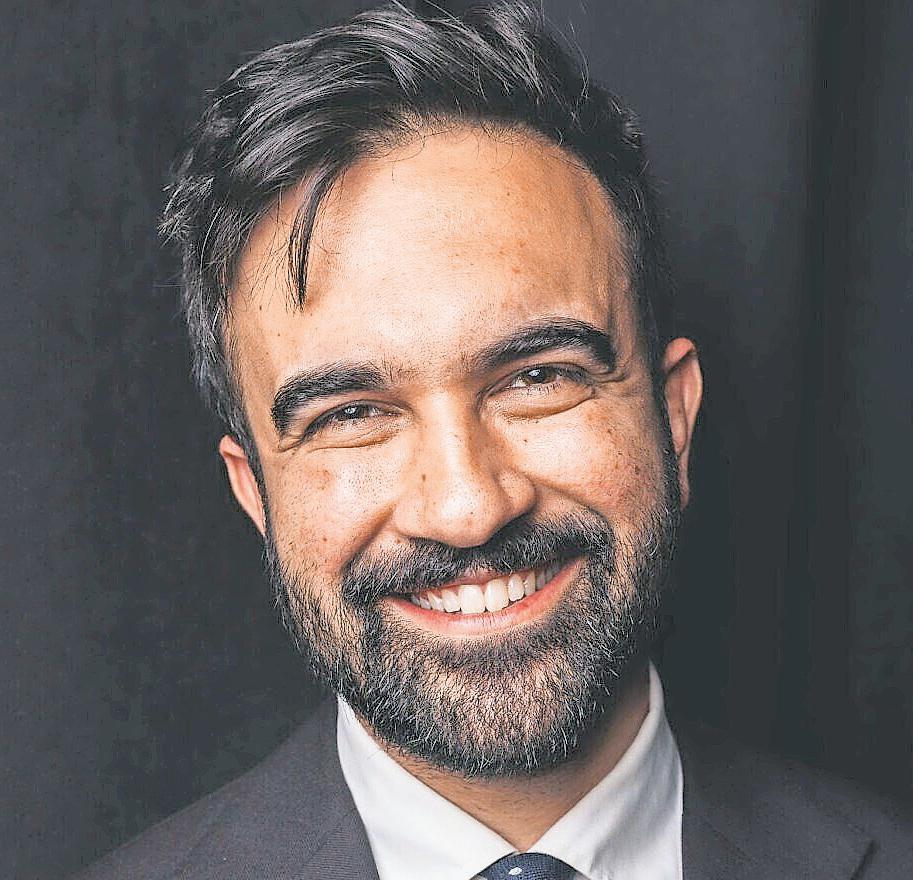




WARREN COHEN
RocketshipPR

grew up in Brooklyn Heights, down the street from the Brooklyn Bridge. I’m the grandson of a proud Democrat, a judge and an assemblyman who devoted his life to the city. There’s even a park named after him in nearby Williamsburg, a small but lasting tribute to a man who believed that public service was about bringing people together. My father followed in his footsteps, dedicating his life to the city he loved.
I tried to do the same.
In 2010, I ran for office in the Democratic Party primary and lost to Lincoln Restler, a good man and someone I still respect. I also worked for Brooklyn Borough president Marty Markowitz, helping organize multicultural and interfaith events that celebrated what made New York great — our differences, our shared humanity and our pride in one another. Back then, even people who disagreed on everything politically could still share a stage, a parade, or a meal.
I remember those days vividly. People like pro-Palestinian activist Linda Sarsour, who has become a symbol of division and radicalization, once seemed like a partner in dialogue — an ally in the shared belief that coexistence among different sectors of the population was possible. The energy of Brooklyn politics was passionate, electric, and yes, a bit messy, but it wasn’t hateful.
That was the New York I knew. That was the Democratic Party I believed in.
The rise of state assemblyman Zohran Mamdani, a Democratic Socialist, and those like him represent something en-

tirely different — a rot in New York politics. What he preaches isn’t progress or justice. It is hatred disguised as activism, and antisemitism dressed up as empathy. Clip after clip shows it clearly — a relentless campaign of hostility toward the Jewish people and the State of Israel.
The fact that some Satmar groups would even consider supporting him is beyond tragic. It shows how far we’ve strayed from basic moral clarity. These aren’t the politics of helping the working class or fighting inequality; they’re the politics of poison and deceit.
Mamdani isn’t a reformer. He’s a cancer in the
body of New York’s political culture, and his ideas are delusional and dangerous. If this is what the Democratic Party has become, then the Brooklyn that my grandfather and father served — the city that raised me — no longer exists.
Inow live in Florida, after more than 30 years of traffic, taxes, crime and decay. My dad knows I’m now a Republican because I couldn’t identify with the progressive “Squad” in the House of Representatives. I left the city I loved because I no longer recognized it. And now, watching from afar, I can barely stomach what I see.
Mamdani is a cancer in the body of New York’s political culture. His ideas are delusional and dangerous.
When Mamdani stands on a stage and weaponizes family stories to justify his hatred, I think back to my own.
I grew up by the Brooklyn Bridge. I remember 9/11 — the smell of smoke, the chaos, the sight of surgeons and EMS workers doing everything they could to save lives. That smell, of death and evil, stayed with me.
I smelled it again 20 years later, at Kibbutz Nir Oz in Israel, after Hamas massacred innocent civilians on Oct. 7, 2023. The stench of human cruelty doesn’t change; it only reappears when we stop recognizing evil for what it is.
If Mamdani wins, what does that say about us?
Has Rome fallen? Are we so numb that we’ll elect a man who hates Jews, despises Israel and divides every community that he touches?
The Brooklyn I loved would never have allowed that.
The New York I believed in — diverse, tough, compassionate, but one that worked for and with individual communities — would never have stood for it.
But that’s the test now.
Because history doesn’t repeat itself quietly. It roars, if we let it.
Warren H. Cohn is the founder of RocketshipPR and Media Adviser to the American Middle East Press Association.

The Jewish Star is seeking a new editor who will be responsible for expaning local news coverage, recruiting and managing staff and freelance contributors, and editing and enhancing material from The Star’s wire services — all while maintaining the highest Jewish and journalistic standards.
This full-time in-person or hybrid position (starting at $45k-60k) offers Jewish
holidays, vacation, health insurance, and 401k.
Candidates should have news reporting and editing experience, an understanding of what interests Modern Orthodox Jewish communities, and a drive to excel in a professional, collegial environment.
While our primary competitors emphasize one-dimensional and biased political

coverage, The Jewish Star’s team of veteran journalists is committed to the highest professional standards — insisting on journalistic and commecial integrity and a pursuit of truth that’s grounded in an adherence to Torah values and a love of Israel.
The Jewish Star, serving diverse Modern Orthodox communities on Long Island, in Queens, Riverdale, Upper Manhatan and
Westchester, is an independent newspaper produced by Richner Communications, a 100 employee familyowned company that publishes the Pulitzer Prize winning Riverdale Press and dozens of community newspapers, websites and shopping guides.
Proudly wear your Jewish Star in a kosher environment … and help make Jewish journalism great again.


In 2024, Republicans achieved something many thought they never would: real progress with Jewish voters. Then-candidate Donald Trump’s share of the Jewish vote rose to roughly 36%, up from 2020, with especially strong showings in Florida and parts of the Midwest. For a community that has historically voted Democratic, that was a meaningful breakthrough.
Those gains reflected more than partisan shifts. It signaled that Jewish voters, like many Americans, were drawn to a Republican message that emphasized strength, security and moral clarity in a turbulent time. When progressives struggled to condemn antisemitism or defend Israel after Oct. 7, Republicans offered a voice of conviction.
Yet less than a year later, that progress is at risk. The threat is not coming from Democrats. It is coming from within the conservative movement itself from a growing culture of outrage that rewards provocation over principle. Across right-leaning media, a new generation of influencers has learned that controversy drives clicks and extremism pays. Far-right political commentators, including Candace Owens, Tucker Carlson, Dave Smith and Nick Fuentes, have built enormous followings by promoting conspiracies about Jewish control, global cabals or shadow elites.
But antisemitism is only the entry point. These same corners of the movement traffic in all kinds of paranoia, that vaccines are poison, elections are rigged, school shootings are staged, and every institution is lying. The specifics shift, but the common thread is distrust, cynicism and the belief that chaos is courage.
It is a toxic cycle. Social-media algorithms reward outrage, outrage fuels engagement, and engagement becomes mistaken for leadership.
For millions of younger Americans who now get most of their news from TikTok, YouTube or podcasts, these voices have replaced traditional gatekeepers. A 2022 Pew study found that nearly half of Americans under age 30 often get their news from social media, and fewer than one in five verify what they see. The result is an echo chamber where the loudest and most extreme ideas drown out everything else.
If this sounds familiar, it should. Democrats went through their own version of this when they allowed the far left to dominate online conversation. Party leaders hesitated to challenge the progressive “Squad” in the U.S. House of Representatives and its activist base, worried
about alienating their digital followers. The result was predictable. Moderation gave way to ideology, Jewish voters grew uneasy as Israel was vilified, and many independents felt the party no longer spoke to them. Voters responded in 2024 by handing Republicans control of the presidency, the House and the Senate.
Now Republicans risk falling into the same trap. The problem is not only antisemitism but a broader willingness to indulge extremes, and to treat conspiracies, culture-war stunts and personal vendettas as substitutes for serious ideas.
When conservatives stay silent, they forfeit the moral and intellectual high ground that once defined the movement. What begins as tolerance for different opinions quickly turns into indulgence of dangerous ones. And when public figures avoid calling out the loudest voices, whether to protect their ratings or their relevance, extremism takes root and reason retreats.
Even respected commentators play along. Media personality Megyn Kelly, one of the most skilled interviewers on the right, often sidesteps direct criticism of Carlson or Owens because she knows how powerful their audiences are (and because she has said they are her friends). That caution is understandable in a fractured media landscape, but it also shows how easily influence becomes intimidation.
Iwrite this not as an outsider but as someone who has spent years working in conservative circles and long felt at home there. I was drawn to the Republican Party for its clarity on Israel, its defense of free speech and its belief in individual responsibility. But lately, I have found myself glancing over my shoulder in spaces that once felt serious.
Remarks that would have been unthinkable a few years ago now surface as edgy humor. They are not jokes. They are warnings.
If Republicans want to preserve the gains they have made with Jewish voters and maintain credibility with the broader public, they need to lead by example. The lies, conspiracies and flirtations with extremism must be called out clearly and consistently from the top down. This is not about policing thought. It is about setting standards.
Most Americans are not watching podcasts at two in the morning or scrolling YouTube to see who thinks Jews control the traffic lights. They are parents, professionals, small-business owners and students who simply want a serious, responsible alternative to the left. Those voters rewarded Republicans in 2024 because they offered steadiness when others offered slogans.
Keep letting the loudest voices run the show, and voters will move on to someone who sounds sane.
Mor Greenberg is the founder of Mor Media Group and a former vice president at ColdSpark. Write: Columnist@TheJewishStar.com


By the Orthodox Union
It spanned just six and a half hours, but for 70 heads of North American Bikur Cholim organizations, the Orthodox Union’s inaugural National Bikur Cholim Conference 2025 in New York’s Financial District was nothing short of transformative.
Among those attending was Leah Fink, president of Bikur Cholim of Far Rockaway and the Five Towns (Bikur Cholim FR & 5T).
“Our community is huge — we have 100 shuls here,” Fink notes. “I was moved by smaller communities, whose Bikur Cholims operate on a large scale. Our population is over 10 times the size of the community in Passaic-Clifton, New Jersey, for example, and they send out an astounding number of meals.”
“After the conference, my message to our Bikur Cholim was, ‘We need to increase our volume and reach more people. We need to find the cholim, by ramping up our marketing efforts and community outreach’,” Fink said.
The OU’s Department of Synagogue Initiatives — part of the OU’s Department of Community Engagement — created the conference as a space for Bikur Cholim leaders to collaborate, exchange ideas, and build networks of mutual support.
Participants bonded over shared experiences, challenges, strategies, and achievements, leaving with practical tools and significant chizuk to propel them through the months ahead.
“It’s hard to describe the power of what we witnessed at this gathering,” reflects OU National Director of Synagogue Initiatives Rabbi Adir Posy, who organized the event.
He described the attendees as “quiet heroes who open their homes, fill hospital rooms with comfort, and ensure that no Jew ever feels alone in their time of need.”
OU Managing Director for Community Engagement Rabbi Yaakov Glasser notes the conference reflected the Orthodox Union’s broader

vision, to serve as a unifying space for those supporting every dimension of communal life.
“The OU is uniquely positioned to bring together such a diverse range of geographic, demographic, and ideological segments of our community, all in the service of strengthening Klal Yisrael,” he said.
Program sessions included “Collective Purchasing and Shared Resources,” “Strengthening Bikur Cholim hrough Technology,” and “What Keeps Us Up at Night and What Gets Us Out of Bed.”
The latter was led by Audrey Siegel, executive director of Bikur Cholim of Greater Washington, which serves 12 hospitals, operates a hospitality house, stocks hospital pantries, runs a kosher kitchen, and offers numerous communal programs.
The program also included two facilitated small-group sessions, “What We Do and What We Need” and “Volunteers & Sustainability,” giving leaders a chance to exchange best practices, share common hurdles, and explore long-term solutions.
“The facilitators were excellent, and we managed to share practical advice in a very short amount of time,” says Siegel.
“I came away feeling less alone and more a part of a dynamic team of people throughout the world, all working toward the same goals. Our communities differ, as do the specifics of what we offer, but we are united in our mission to help Klal Yisrael when it’s needed most.”
Among the session facilitators was Dr. Nina Butler, founding director of Bikur Cholim of Pittsburgh, which supports local and out-of-town patients and their families facing medical challenges. The organization provides home hospitality, kosher meals, transportation to hospitals, airports, and appointments, and assists with a variety of personal requests.
“As the discussion leader, I invited each participant to share a bit about their city and what makes their Bikur Cholim unique,” says Butler.
“Those simple prompts sparked genuine inter-
est and rich, organic conversation. The amount of learning that emerged from just listening to one another was remarkable. There are so many selfless people doing chessed as a full-time profession that anyone would be inspired. Each person had a story, and a lesson to share. It was priceless.”
Bikur Cholim FR & 5T provides comprehensive support to those facing illness and their families. From meals, visits, medical equipment loans, and transportation, to subsidizing medical costs — including often-uncovered mental health therapies — the group addresses a wide range of needs. It also offers respite care, senior programming, and educational through community lectures and preventive health initiatives.
In addition to forging new connections, Fink deepened relationships with two leaders she had only previously met by phone. Since the conference, she has followed up with various Bikur Cholim organizations to discuss innovative ideas, seek advice on implementing certain practices, and exchange forms and protocols.
She was especially inspired by the achievements of Bikur Cholims in smaller communities.
In the short time since the event, Bikur Cholim FR & 5T has connected with local shul rabbis to help spread the word about their services. They also plan to advertise to all the local schools, update their website, and expand their social media presence.
Like Fink, Siegel left the conference energized and ready to expand her organization’s reach.
“At the conference, we created a WhatsApp Group and established relationships that have already been helpful,” she says.
“Thanks to these new relationships, I was able to help two families requiring assistance in another city to connect with the best Bikur Cholim contact in that area. I am grateful to the OU for introducing me to so many other Bikur Cholim organizations and facilitating such powerful collaborations.”





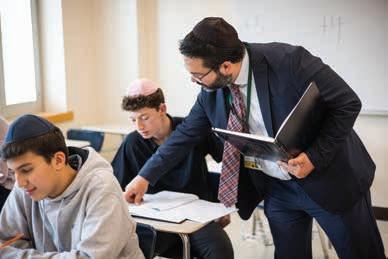




By Dave Gordon, JNS
Documenting Jewish cemeteries and synagogues over a decade for what became his book, “The Posthumous Landscape: Remnants of Jewish Life in Eastern Europe,” photojournalist David Kaufman found helpers and those who got in his way.
“Every place we went, there was someone who knew where the former cemetery or synagogue was. Those people were invariably happy to help us find our way and did this graciously, often out of a commitment to preserve Jewish material culture,” the Toronto-based filmmaker and former CBC documentarian told JNS.
Some non-Jewish caretakers have long tended to Jewish sites, like the man who has cared for and catalogued every stone in the Jewish cemetery in Bochnia, 25 miles southeast of Kraków, for 50 years.
Kaufman asked the man why he did it.
“I cared for the Jews who lived in this town before the war,” the man said. “They were my brothers.” The man’s sibling had been a political prisoner in Auschwitz, he told the photographer.
A “very interesting phenomenon” that Kaufman encountered was in smaller cemeteries, whose only visitors were Chassidim from abroad who came to gravesites of revered rebbes. Kaufman learned that a new generation of Poles, including those who are outsiders in their communities like gay and socially margin-
alized people, has taken up the responsibility of protecting Jewish heritage.
But not all of his encounters were positive. When he tried to photograph a marketplace built over a medieval Jewish cemetery in Lviv, Ukraine, people in the market, who were wary of outsiders due to court battles over the land, told him he couldn’t take pictures.
“Traveling through all these places,” he said, “underlines how precarious Jewish communal life is everywhere.”
At some shuls and cemeteries in Europe, Jewish sites are quite precarious.
“There are parts of the Warsaw Jewish cemetery and parts of the Lodz Jewish cemetery where you simply cannot walk in anymore, because they have not cleared the vegetation for five or seven years,” he said.
The coffee table book, published last month, contains 163 photographs — culled from 600 — documenting landmarks in dozens of oncevibrant Jewish communities in Poland, Ukraine, Latvia and Lithuania that are now in tatters and ruins after decades of disuse.
“This was the heart of Jewish civilization for hundreds, almost a thousand years,” he said.
Greenery has overtaken many of those sites. “If you look at pictures of the Warsaw cemetery before the war,” he told JNS, “there are no trees. But these cemeteries were partly damaged, and trees were allowed to grow up
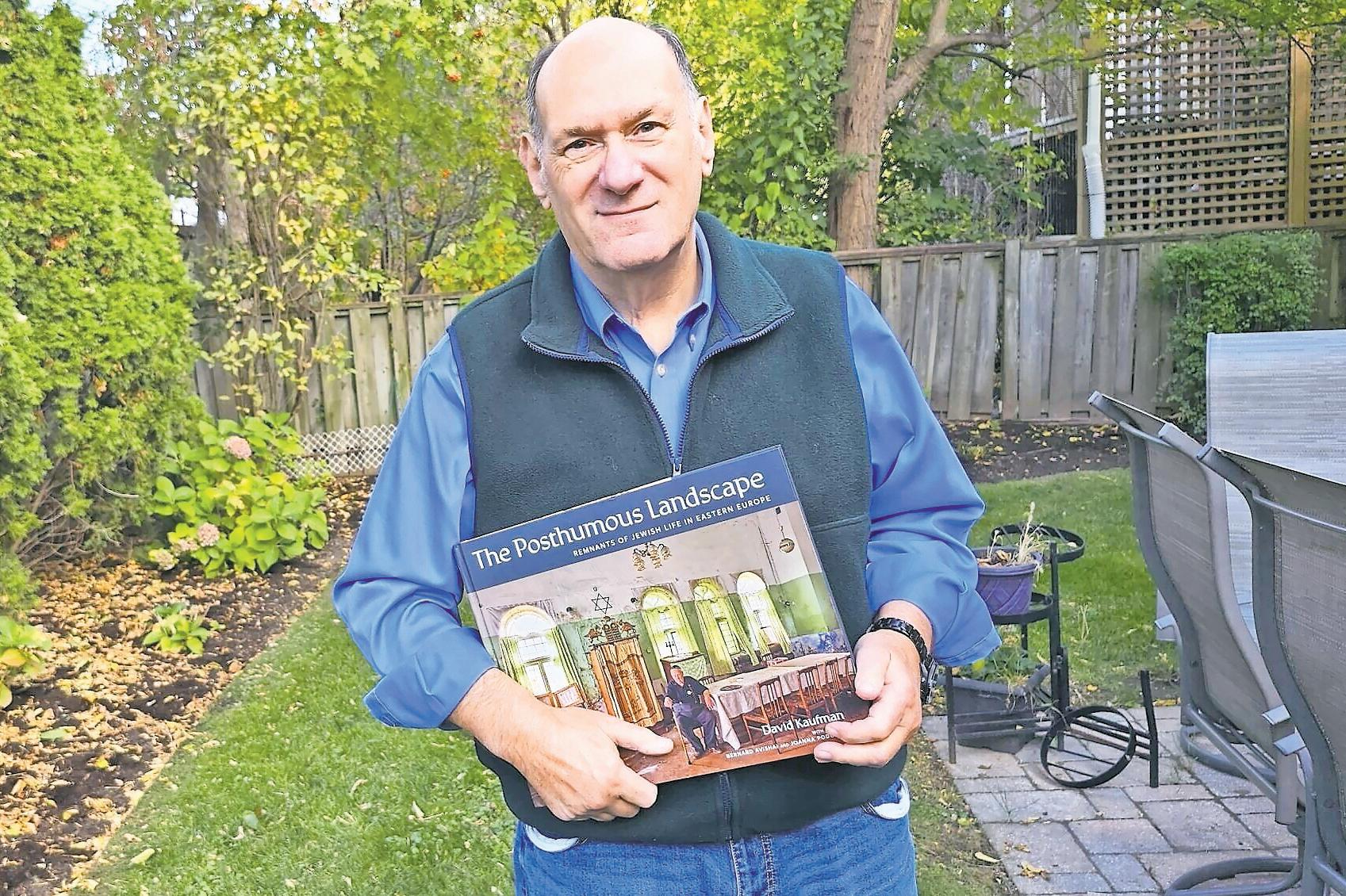
during the Soviet period.”
“Now they’re like forests — beautiful green forests with huge numbers of carved memorial stones,” he said.
Raised in an Orthodox home in Montreal, Kaufman had a strong Jewish education and long aspired to “express my Jewishness in my professional work.”
His early career led him to documentary filmmaking, including work for CBC’s “The Fifth Estate.” He recalls a 1992 reporting trip to a small town in Poland, called Kazimierz Dolny, about 30 miles from Lublin.
“They were trying to build a hot water line across a football field in a high school, ironically a high school named after Janusz Korczak, who, of course, had been the director of the orphanage in the Warsaw Ghetto, and who chose to go to Treblinka with his young charges instead of letting them go by themselves,” he told JNS.
Returning to Canada from that trip, he picked up a copy in the airport of “A Tribe of Stones: Jewish Cemeteries in Poland,” a book of black-and-white photos that Polish-Jewish artist Monika Krajewska published in 1983.
“I made a very strong mental note,” he said. “This is a project you should do, you should take up sometime in your life.”
“And I pored over that book, and the photographs were beautiful, I thought this could be a worthy subject for a photography proj-

ect,” he said.
For the project that became his new book, Kaufman mapped and photographed nearly 50 sites, often using detailed U.S. congressional reports to identify cemeteries and synagogues.
The project stretched across regions “where Jews once made up 30%, 40%, 50%, sometimes 90% of the population,” he said. “There is nothing left except maybe a cemetery or maybe a ruin of a synagogue, and sometimes not even that.”
Wherever there is a shul and ruins, “that place will definitely not be there in 10 or 20 years,” he said. “The synagogue in Brody, in western Ukraine, it’s completely collapsed now.”
That synagogue has extensive water damage, and the roof collapsed, according to Kaufman.
“It’s in a residential area in a small town, where children play, and the mothers are not happy that children are playing in the ruins,” he said. “Unless the Jewish community spends considerable money to restore the synagogue, which is very unlikely in that place, it’ll eventually be torn down. There’s just no question.”
Ten years have passed since Kaufman started his project. It’s now a “different historical era” with fewer survivors and rising Jew-hatred. There is “renewed urgency” now to learn the lessons of Jewish history, he said.
“I don’t think I’m exaggerating,” he said. “Jewish life everywhere is more fragile than ever.”

By Rolene Marks, JNS
Zaziwe and Zamaswazi (Swazi) DlaminiManaway, the granddaughters of South Africa’s legendary leader, Nelson Mandela, have told JNS that while their visit to Israel and Gaza in September had been strictly humanitarian, it was also “life-changing.”
The two sisters, whose mother, Zenani MandelaDlamini, was the second daughter of Mandela’s second wife, Winnie, met Israeli President Isaac Herzog, toured Yad Vashem and Jerusalem’s Old City, and visited areas in southern Israel devastated by the Oct. 7, 2023, attacks.
Zaziwe Dlamini-Manaway said the visit had profoundly affected their understanding of the Israeli-Palestinian conflict.
“It was life-changing and really opened our eyes,” she said after returning home to South Africa. “We saw the truth with our own eyes, including the amount of aid. Reports in the media have led us to believe that there was little or no aid going into Gaza. This couldn’t be further from the truth.”
The sisters highlighted the coexistence they had observed in Israel.
“We met Jews, Christians and Muslims, people of different identities, who share the same hopes for security, family, and a peaceful life,” they said in joint remarks to JNS. “Away from the cameras, you see daily coexistence, people working together, children playing together, communities building lives side by side.”
Regarding their view of Israel, they said, “We came as humanitarians and peacemakers, not politicians, and what we witnessed was a society far more complex and interconnected than what headlines often suggest. Seeing people of different faiths and backgrounds living and working side by side, even after unimaginable pain, deepened our respect for those

striving to make coexistence real.”
During their mission to Gaza, the sisters joined the Gaza Humanitarian Foundation (GHF), helping to distribute more than 10,000 meals, particularly to women and children.
“What we saw were families who have lost so much yet still hold onto dignity, faith and hope,” Zaziwe said. “The strength of the women we met, their courage in the face of devastation, will stay with us forever.
“We also saw how essential coordination and safety are in getting aid where it’s needed. Delivering assistance responsibly and securely, through established humanitarian channels,
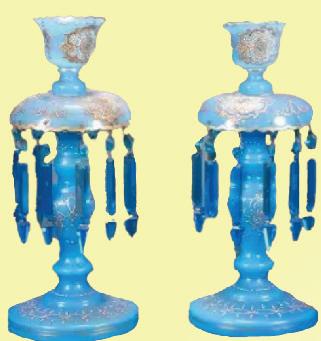




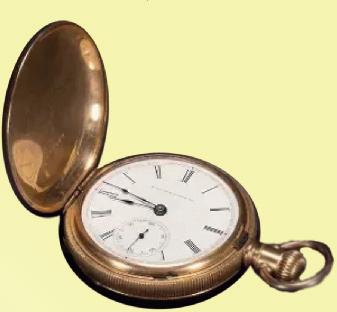



including more than 10,000 meals, particularly to women and children.”
While their cousin Mandla Mandela was detained in Israel after joining the Global Sumud Flotilla, the sisters condemned hateful rhetoric that denies Israel’s right to exist or distorts its suffering.
“We come from the house of Winnie and Nelson Mandela and choose to make our own mission strictly humanitarian,” they said. “We came to Israel and Gaza to listen, to learn and to deliver aid, not to make political statements or assign blame.
“Our work is grounded in compassion and bridge-building, not division. We believe that real progress comes from acknowledging each other’s humanity and working together to ease suffering, not through inflammatory or extremist language of any kind.”
After viewing the Nova festival memorial in the Re’im forest and Kibbutz Nir Oz, they were “shocked to the core by the scale of atrocities and people killed simply for being Jewish.”
ensures that help reaches those who need it most and prevents further harm.”
Prior to the visit, they said, like many around the world, they had seen South African media reports of food shortages and famine in Gaza.
“Our time in Gaza with the Gaza Humanitarian Foundation was both heartbreaking and hopeful,” they said.
“We worked alongside incredible local and international partners and through the coordination and support of the National Black Empowerment Council, which helped make our visit and humanitarian mission possible, we were able to distribute food and essential aid,
Despite the grief they witnessed, they found hope in Israelis refusing to give up on peace. Drawing on their grandfather’s legacy, they emphasized the importance of reconciliation and dialogue.
“We all want the same end goal: dignity, safety and opportunity for all people; but we believe in achieving that through dialogue, cooperation, and practical acts of compassion,” Zaziwe said.
The sisters concluded that if Nelson Mandela were alive, he would “call on leaders and ordinary people alike to choose dialogue over despair, courage over fear. We carry that lesson with us wherever we go.”
“Our message is simple,” they said. “See the humanity in one another, protect life, and keep faith that peace, however difficult, is possible.”

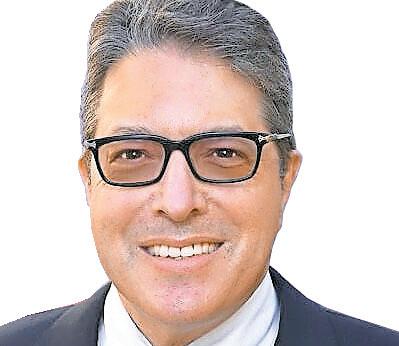
n the summer of 1942, facing an existential threat from Nazi Germany’s nuclear program, the United States launched the most ambitious scientific undertaking in human history.
The Manhattan Project marshaled unprecedented resources — $2 billion (more than $40 billion in today’s dollars), 130,000 workers and the nation’s brightest minds — against a determined enemy and an unforgiving clock.
Three years later, American scientists had not only matched but surpassed their adversaries, fundamentally altering the trajectory of World War II and the balance of global power.
Today, American pro-Israel advocacy faces its own inflection point. As chief policy officer of the Israeli-American Civic Action Network (ICAN) and vice mayor of Beverly Hills, Calif., I witness this challenge from two vantage points: as a policy professional working to build pro-Israel networks and as an elected official experiencing firsthand how anti-Israel activism has systematically invaded state and local government.
The reports coming out of New York (where state assemblyman Zohran Mamdani, a Democratic Socialist and BDS supporter, is leading the mayoral race) and Minneapolis (where anti-Israel activists have captured significant local political infrastructure) are alarming. But they’re not isolated incidents. In California, I’ve watched several cities pass one-sided, Hamasinspired ceasefire resolutions while pro-Israel voices remain systematically absent from local political and electoral processes.
The time has come for our own Manhattan Project: a national, coordinated mobilization to build professional pro-Israel infrastructure at the state and local levels before anti-Israel activists complete their institutional capture of American politics.
Until recently, the division of labor in pro-Israel advocacy seemed fairly clear, although misguided. Historically, AIPAC has handled matters related to Israel almost exclusively at the federal level. At the same time, Jewish federations and Jewish Community Relations Councils have managed state and local Jewish community relations, while usually keeping Israel off their agendas for what they felt were sound strategic reasons.
There were also practical questions of expertise and inclination. Jewish communal professionals working in state and local affairs are generally not so well-versed in Middle East policy or Israel advocacy nuance, though they should be since anti-Israel rhetoric is often used as a thinly veiled cover for anti-Jewish behavior.
It is alarming that some Jewish community professionals — reflecting broader trends in some progressive Jewish spaces — may even hold anti-Zionist views themselves.
This arrangement has been both divisive and dangerous, and it is fundamentally wrong. When local Jewish groups aren’t willing to defend Israel from false narratives, propaganda and blood libels, whether or not framed within a “woke” ideology, it endangers Jews. Jewish safety and security must never again
7,383 state legislators hear almost exclusively from voices unreasonably critical or underinformed about Israel.
depend upon the kindness of strangers, and Israel must be a red line for all groups concerned with the welfare of Jewish communities in America and around the world. No, this doesn’t mean a defense of every Israeli government or of all Israeli policies. But it does mean support for the very existence of a Jewish state in the ancestral homeland of the Jews, where we are indigenous.
It means a recognition that a demonization of Israel, coupled with the Münchhausen-style false narratives and mutating blood libels that regularly flood legacy media and social media, are making Jews around the world less safe, as evidenced by the beating murder of Paul Kessler, 69, in Thousand Oaks, Calif.; the firebombing murder of 82-year-old Karen Diamond in Boulder, Colo.; and shooting deaths in Washington, of Israeli embassy staffers Yaron Lischinsky, 30, and Sarah Milgrim, 26, who were on their way to being engaged.
Anti-Israel activists have unilaterally expanded the battlefield to state and local levels, creating a massive advocacy vacuum that they are systematically filling with professional political infrastructure.
The scope of this infiltration is staggering. The Democratic Socialists of America elected 200-plus officials to state and local offices since 2017, each vetted in candidate questionnaires for anti-Israel positions regardless of whether their role involves foreign policy. Organizations like CAIR, Jewish Voice for Peace and Students for Justice in Palestine have targeted school districts, city councils and state legislatures with coordinated, sophisticated lobbying campaigns.
Their attacks on Israel don’t only serve to demonize and delegitimize Israel while employing double standards; they also deflect from and trivialize the dangers of the jihadi ideology of the Muslim Brotherhood and other Islamofascist groups in this country and abroad.
I’ve witnessed this firsthand in California, where several cities have passed one-sided ceasefire resolutions, divestment proposals and made statements that echo Hamas talking points while ignoring Israeli security concerns, hostage releases or the context of terrorist attacks in southern Israel on Oct. 7, 2023.
These resolutions don’t emerge organically; they are the result of coordinated pressure campaigns by anti-Israel activist groups who understand that local government shapes public opinion and provides a stepping stone to higher office.
Meanwhile, 7,383 state legislators nationwide hear almost exclusively from voices unreasonably critical or under-informed about Israel on issues ranging from ethnic-studies curricula to Jewish student safety and inclusion. As someone who works in local government and proIsrael advocacy, this vacuum is professionally stunning and strategically dangerous.
The rise of politicians like Mamdani illustrates the consequences. He built his antiIsrael credentials over the years: co-founding Students for Justice in Palestine at Bowdoin College, leading BDS chants at rallies, introducing legislation targeting pro-Israel nonprofits, and, if elected mayor of the largest city in the United States, pledging to arrest Israeli Prime Minister Benjamin Netanyahu. Each step occurred without organized pro-Israel opposition because our infrastructure simply doesn’t exist at these levels.
In January of 2020, as mayor, I had the opportunity to make Beverly Hills the first city in the United States to adopt the International Holocaust Remembrance Alliance (IHRA) working definition of antisemitism. This wasn’t just symbolic; it provided a concrete tool for identifying and countering antisemitic content, including anti-Israel materials that meet the IHRA definition.
The IHRA is particularly important to combat the latent advantages shamelessly activated by the anti-Israel actors. As Irish politician and writer Conor Cruise O’Brien once noted: “There are those in whom antisemitism is a light sleeper.”
As my grandfather, Bill Goldberg, often said: “Jew-hatred is never far beneath the surface.”
The public relations and legislative advances made by CAIR and other hate groups — many fueled by Qatari cash — are directly built upon the world’s oldest extant form of racism.
By falsely claiming that the IHRA working definition does not permit criticism of Israeli policies or the Israeli government, anti-Israel actors continually attempt to discredit the definition to shield themselves from accusations of anti-Jewish racism. Ultimately, however, this knee-jerk rejection of the IHRA working definition itself is a revealing form of racism denialism.
Working with ICAN, I learned how to build sustainable local networks rather than relying on one-off victories. This dual-use capability proved invaluable during Israel’s recent operations against Iran. Our networks built around education issues mobilized within 24 hours to support Israel’s defensive actions, demonstrating how local infrastructure converts instantly to national security advocacy when needed.
Through my work as ICAN’s chief policy officer, I have seen how we’ve solved the fundamental challenge that prevented earlier state and local pro-Israel organizing: how to build infrastructure without diluting AIPAC’s federal power. The last thing any pro-Israel advocate wants is to undermine the most effective proIsrael entity in American history.
In support of some of the nation’s pro-Israel think tanks, ICAN aims to be an “action tank.” Its breakthrough came from recognizing that K-12 education provides a natural entry point for state and local Israel advocacy.
When anti-Israel activists push BDS content into ethnic studies curricula, they make Israel a local issue by forcing local responses. Rather than avoiding this battlefield, ICAN engages it systematically, building political networks on the backbone of parental concern for their children’s education.
This approach offers unique advantages not available at the federal level. Jewish mothers, Israeli-American parents and non-Jewish allies unite around their children’s education to create authentic grassroots networks that scale to broader policy engagement. Unlike traditional advocacy approaches that feel imposed from outside, parent-based organizing emerges from immediate community concerns.
Central to this model is mobilizing the Israeli-American community specifically. IsraeliAmericans possess advantages that traditional pro-Israel advocacy cannot replicate: an authentic connection to Israel that cannot be dismissed as mere lobbying; civil-rights protections against national origin discrimination that provide legal standing against BDS campaigns; and immigrant community dynamics that resonate across diverse political constituencies.
Through joint Israeli-American leadership structures, ICAN combines Israeli expertise with American civic knowledge, creating voices that speak to local concerns while maintaining credible Israel advocacy. This isn’t theoretical. I’ve watched it work across California as we’ve defeated statewide anti-Israel legislation, supported Jewish safety in local school districts and built electoral accountability for pro-Israel positions.
As part of ICAN’s advocacy intelligence capabilities, we’ve begun developing what we call the “Mamdani Index” — systematic tracking of anti-Israel politicians advancing through local and state governments nationwide. So far,
we have identified about 30 officials across five states who follow similar trajectories: campus anti-Israel activism; DSA or similar organizational affiliation; advancement through local offices while building anti-Israel credentials; and preparation for higher office.
This early-warning system reveals the scope of the challenge and the urgency of response. Each of these 30 officials represents not just current anti-Israel votes, but potential future federal leaders shaped by years of unopposed political advancement.
The Index also demonstrates why conventional approaches fail at the state and local levels. Traditional Jewish organizations lack the political focus and systematic approach necessary for this type of monitoring. They also often lack the political will. Federal-focused organizations lack the state and local connections required for comprehensive tracking. ICAN’s model generates both the relationships and analytical framework necessary to identify threats before they become crises.
Like the original Manhattan Project, building comprehensive state and local pro-Israel infrastructure requires recognizing the scale of the challenge and responding with commensurate resources and urgency. The 2026 state elections will seat the political leaders who shape America’s relationship with Israel for the next decade. Without immediate, systematic intervention, the pipeline that produced Mamdani will produce dozens more like him.
I can attest that ICAN’s model works. We have defeated AB 1468 (statewide anti-Israel ethnic-studies expansion); secured Los Angeles Unified School District and United Teachers Los Angeles condemnation of BDS; won IHRA antisemitism definition adoption in Beverly Hills, West Hollywood and Los Angeles; and contributed to defeating anti-Israel LAUSD candidate Khalid Al Alim in 2024. Each victory built additional political capital and expanded network capabilities.
But success in one state isn’t sufficient when anti-Israel activists operate nationally. And continued success in California itself is no longer a given when considerable fiscal resources are poured into demonizing Israel by Qatar, its Al Jazeera propaganda network and other malign actors. What’s needed is the same recognition that drove the original Manhattan Project: Some threats demand mobilization of resources at a scale that matches the challenge’s scope and urgency.
The conventional wisdom that separated federal pro-Israel advocacy from local Jewish organization activities may have made sense to some in a different political environment. That conventional wisdom was wrong in the past, but today, it is downright dangerous: Ignoring Israel at the local levels creates vulnerabilities that anti-Israel activists exploit. ICAN’s working as an action tank has proven that professional state and local infrastructure can fill this gap without undermining federal efforts by strengthening pro-Israel political culture from the ground up.
The infrastructure to ensure our voice is heard in the 2026 elections must be built now. The choice is whether the pro-Israel community will meet this moment with the seriousness it demands or continue with approaches that have proven insufficient to the challenges we face. The time for conventional wisdom has passed.
The Manhattan Project for pro-Israel advocacy at the state and local levels must begin without delay. If not, we must accept that the next generation of American leaders will be shaped by voices that seek Israel’s destruction rather than its security, which will endanger the Jewish community in America as well as Jewish communities around the world.
John Mirisch, former mayor of Beverly Hills, is chief policy officer for ICAN.
Write: Columnist@TheJewishStar.com
mountsinai.org/southnassau


HANC High School hosted its annual club fair, now known as Beyond the Curriculum. The event (pictured) offered students a way to explore how to get involved beyond the classroom and discover activities that reflect their passions, talents and values.
Students were introduced to a wide range of committees, from Pre-Med to Big Brother/Big Sister, Bikkur Cholim, and the Drama Program.
They explored opportunities to contribute to our student publications — The HANC Herald and Midrishei HANC — as well as academic initiatives such as the Peer Tutoring Society and the STEM Journal.
The school’s competitive and academic teams were also represented, including Chess, College Bowl, Debate, and Model UN. They provide students with valuable outlets to sharpen their minds, showcase their skills, and develop teamwork and leadership.
The fair also highlighted many clubs that meet during the weekly Club Hour, giving students a wide variety of options — creative outlets like Art, Photography, Culinary, and Music; active options such as Box Ball and Spikeball; intellectually engaging groups like Robotics and Makerspace; and socially conscious initiatives like the Environmental Club.
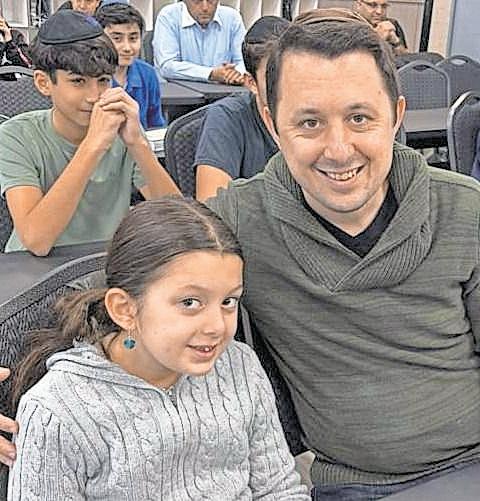
Yeshiva of Central Queens kicked off another year of its Sunday Family Learning program, an optional learning series for students in grades 5-8, their families, and alumni. The program provides a morning of Torah Lishmah,


beginning with Shacharit folowed by breakfast and a shiur.
The series launched on Oct. 19 with Rabbi Mordechai Becher, a world-renowned instructor at YU known for his work on AsktheRabbi.org. He spoke on “Why So Many Mitz-

Our Rosh Chodesh girls’ program, Muffins and Meaning, was a warm and inspiring way to start the new month together. Students enjoyed delicious muffins and hot cocoa while reflecting on themes of renewal and personal growth.
Each student received a reflection notebook to set goals and track progress throughout the year. Morah Adina Waldman spoke beautifully about the power of renewal and the importance of setting meaningful goals each month, while also sharing practical ideas on how to do this.
On a recent Sunday night, the Englanders hosted a Meet and Greet for new HALB parents at their home. They were welcomed by administrators of Lev Chana,
and DRS, along with representatives from the PTA.
Mashgiach Ruchani, Rabbi Daniel Mezei shared a multi-media presentation and offered words of inspiration about embracing new beginnings, growing in character, and building new friendships.
The program, organized by the mechanchot, Mrs. Steiner and Morah Feder, concluded with an engaging activity led by Ms. Simpson, who ran an interactive “Human Bingo: Share Your Talent” game that helped everyone connect and celebrate each other’s strengths.
vot?” Other series speakers include Rabbi Moshe Bamberger, Rabbi Dov Keilson, Rabbi Eliyahu Maksumov, and Rabbi Doniel Staum. In addition to these special guests, the program showcases YCQ’s own beloved rebbeim, with shiurim by faculty members including Rabbi Yehuda Kravetz, JHS Principal Rabbi Stephen Knapp, Rabbi Yosef Howitt, Rabbi Tzvi Greenberg, Rabbi Yaakov Finestone, Rabbi Mordechai Rovner, Rabbi Daniel Rosenfelt, and Rabbi Menashe Babekov.
YCQ thanks Rabbi Ephraim Bernstein and Jacob Grossman for their dedication to coordinating this special program.



The majesty of afternoon tea. No need to shell out megabucks in a fancy hotel for this refined pastime. Tea time is one of the simplest ways to entertain. It can be casual or swanky, and the guest list can range from family, friends and neighbors to members of a volunteer group or book club.
It’s a wonderful way to get together on a winter evening (think rain, snow and ice outside, warm and cozy inside.) Pull out that rarely used wedding china, cake stand, flowered ceramic serving tray or whatever else is hidden in the cupboards. This is your opportunity to get a little extravagant with what you already have around the house.
Think “Downton Abbey” tea right at home.
Teatime can be anytime in 21st-century living, based on the tradition set by the Duchess of Bedford in the 19th century, who decided it was much too long between lunch and dinner to go without a snack. So she ordered a light repast of Lapsong tea, scones and cakes to hold her over.
The “meal,” by the way, is not confined to adult entertaining. When it’s an early school closing or days off for the kids and they want something productive to do, let them try their hand at this basic style of cooking. Then they get to eat their creations in a civilized fashion.
They can make elegant-looking peanut-butter-and-jelly, egg- and tuna-salad sandwiches, pressing the bread for a thin, crustless finale, just as British royal Princess Charlotte might do. And kids love to pat out the sticky dough for scones.
Scones, the real British variety, are moist and spongy inside, and crunchy-crisp on the outside. Made with inexpensive ingredients — flour, butter and sour milk — they could be mixed and baked in minutes, and were served in both farmhouses and mansions.
The triangular Petticoat Tails, or four-ingredient shortbread cookies, are said to resemble the long, frilly underskirts of 16th-century ladies. In the Shetland Isles where I grew up, a round shortbread cake was broken over a bride’s head as she

entered her new home. The rich, buttery, cookieinspired one Scottish chef called “shortbread” became the “jewel in the crown” of Scottish baking.
I’ve added my version of Victoria Sponge, a favorite of Queen Victoria. Start off with a small angel-food cake, split and fill with whipped cream and sliced strawberries. It can be made in minutes and tastes divine. If you want to be a purist, start off with a glass of sherry to sip, as did the mansion-house gentry.
As for tea, the dry, aromatic leaves were scarce, expensive and highly taxed. British housekeepers kept it in a locked box, attaching the key to one’s belt so that it could be doled out as needed. Sandwiches, scones, shortbread and that precious tea — an elegant, easy, but necessary afternoon revival.
Makes 20
Cook’s Tips: •Buy a thinly sliced loaf, at only about 40 calories per slice. •Use a serrated knife to cut off crusts. •Make sandwiches 4 hours or so ahead of time. Cover loosely with a damp paper towel to prevent drying out and refrigerate.

Ingredients:
• 20 thin slices of white or brown bread
• Vegetable cream cheese at room temperature
• 1/2 cucumber, peeled and thinly sliced
Directions:
Pile 10 slices bread on a cutting board. Remove crusts. Place five slices flat on the board and spread thinly with cream cheese. Top with a layer of cucumber slices, then cover with remaining bread slices.
Press down with your hand. Cut each sandwich into two triangles. Repeat with remaining bread. Arrange on serving platter. May garnish with sliced cucumber (optional).
Makes 8 to 10
Cook’s Tips: •No self-rising flour? Substitute 2 cups of all-purpose flour, plus 4 teaspoons baking powder. •Line a baking sheet with aluminum foil. Discard foil after baking. •Butter should be cold, not soft. •For sour milk, pour in 2 teaspoons white vinegar to 1 cup milk. Let stand 15 minutes. Do not stir. •Use thin latex gloves on hands to rub butter into flour. No need to wash the food processor.
Ingredients:
• 2 cups self-rising flour
• 3 to 4 Tbsp. butter
• 3/4 to 1 cup sour milk
Directions: Place rack in middle of oven. Preheat oven to 425 degrees. Line a baking sheet with aluminum foil and sprinkle lightly with about 1 tablespoon flour.
In medium bowl, rub butter into flour to consistency of coarse crumbs. If using plain flour, stir in baking powder. Make a well in center. Add enough sour milk to make a soft, sticky dough. Turn onto a wellfloured board. Pat into a round circle about 3/4inch thick. Use a little more flour, if needed. Cut into rounds with a fluted 2-inch cookie cutter. Place on prepared cookie sheet.
Bake in preheated oven 10 to 12 minutes until well-risen and golden. Remove to towel-lined basket.
Cover with towel. Best served immediately or within 2 to 3 hours of making.
Leftovers may be split, toasted and spread with preserves.








































































By Howard Blas, JNS
One-hundred-fifty olim sat around tables marked by their native languages — Russian, French, Spanish and English — at ANU- Museum of the Jewish People in Tel Aviv University on Oct. 29.
As participants sipped lemonade, they drew a prompt from a deck of cards and answered questions about their aliyah experience: What’s one thing about Israel that most surprised you? If your aliyah experience was a movie, what would it be called? What was one experience that made you say, “This is why I made aliyah.”
“Life as an olah means that you see and appreciate scenes that I never would have experienced,” said Sharon Weiss-Greenberg, an immigrant herself and ANU’s manager of resource development. “What can be frustrating in the moment becomes tomorrow’s only-inIsrael funny stories for years to come.”
The activity quickly turned from introspective to playful (with lots of laughter) as participants shared language gaffes and stories of dealing with Israeli bureaucracy.
The second annual Yom Aliyah event is a joint initiative of ANU, Nefesh B’Nefesh, the Nadav Foundation, the Tel Aviv Municipality and the Ezra youth movement.
Oded Revivi, ANU’s CEO and the former mayor of Efrat, said the name of the event, Oleh Oleh, had a dual meaning.
“There is a popular Israeli song, ‘Oleh Oleh’, which means, ‘to rise higher and higher’,” he explained. “It is also the name we give to a group of immigrants. Therefore, we should rise and cheer people who come on aliyah.”
He noted that the National Library of Israel, Yad Vashem and ANU, formerly known as Beit Hatfutsot, were set up “to be the center for all Jewish communities.”
Olim meet the definition of a community and constitute one.
“They all did this extraordinary act — they left their birthplaces and families to move to Israel,” he said. “If ANU can be helpful with absorption and building homes here, it is part of our mission.”
Revivi said that his wife, now a mother of six grown children, many of whom have been regularly serving in Gaza, made aliyah at the age of 23 from England. His wife’s experience has helped Revivi better understand the immi-

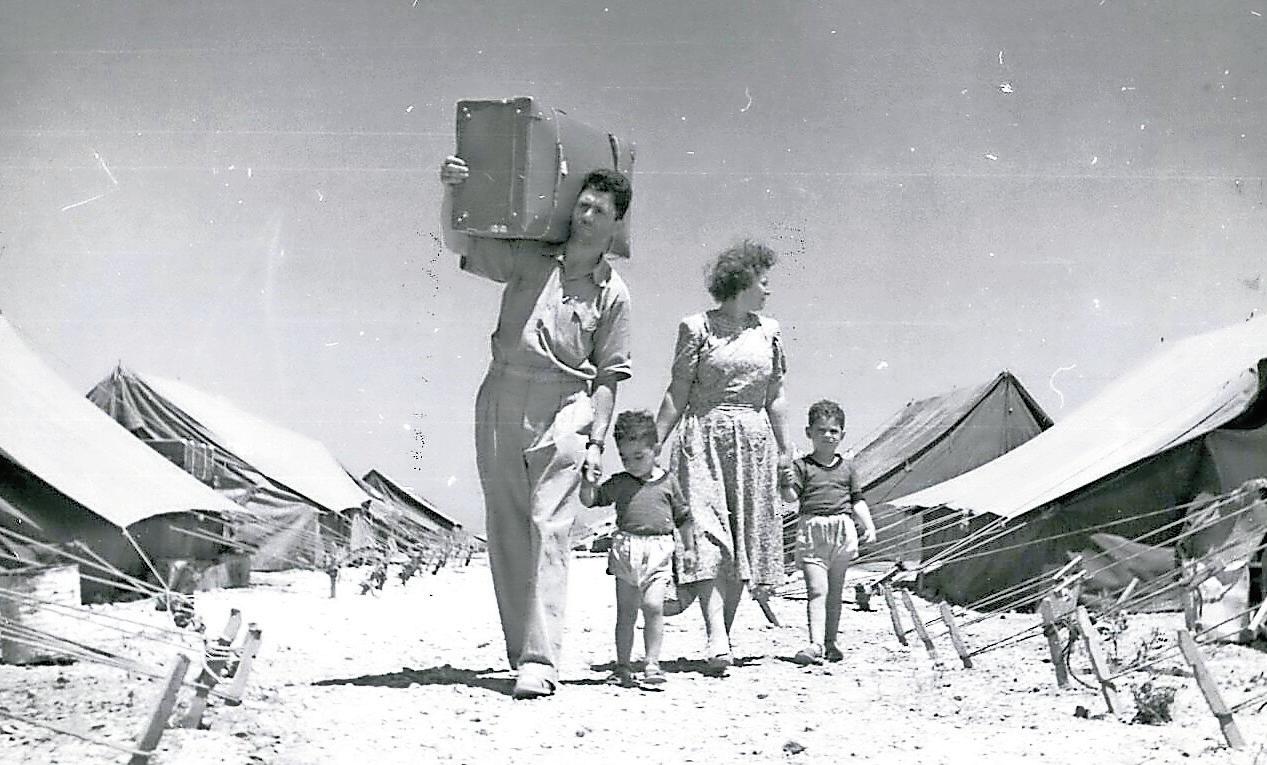
grant experience.
Lindsay Shapiro, ANU’s senior coordinator of English Education, said that each department in the museum — from marketing to finance to education — has olim on staff.
“It is part of our mission. ANU wants to celebrate that,” she said. “Our goal is to make sure ANU is a museum but also a community center and a cultural hub.”
Shapiro pointed out that the contributions
of olim to Israeli society and the world are featured in exhibits throughout the museum.
After signing in, guests arriving at ANU have the opportunity to visit a marketplace in the museum’s lobby, featuring food, beverages, art and clothing on display and for sale by new and veteran immigrants.
Ari Weiss of Karnei Shomron offered free samples of his Popular Kettle Corn. Weiss, who also works as an aliyah adviser for Nefesh b’Nefesh, explained how he and wife, Deena, got into the kettle corn business.
“We were invited within the yishuv for meals and we weren’t sure what to bring. My wife started to make kettle corn; everyone loved it and encouraged us to sell it!”
Chanie Koenig came to the event from her kibbutz in the north to sell a wide range of chocolate products from her Cacao HaGalil company. Originally from North Woodmere, Koenig studied chocolate making in culinary school. She began by using only goat milk and has expanded her product lines. “We try to incorporate what we see in the north and use no preservatives.”
As guests awaited guided tours of the museum’s galleries offered in four languages, many stopped by the screening room on the ground floor to view archival footage from the museum’s Oster Visual Documentation Center collection.
The first color film, Aviv b’Galil (Spring in the Galilee), showed pioneers playing the accordion and dancing at the site of the Huleh Lake before it was drained to eradicate mosquitoes. A black-and-white 1913 film, Little Tel Aviv, showcased the charming Neve Tzedek neighborhood and was screened at the 1913 World Zionist Congress in Vilna. Another film graphically showed the takeover of a ship of refugees by the British in November 1947. In the galleries some joined language-specific tours while others explored on their own.
Three Spanish-speaking immigrants from South America who arrived in Israel approximately five years ago — Carolina Meilich, Maia Dobry and Laura Cohen — explored the “20&20: A Lens of Her Own” exhibition, which features the work of 40 female photographers.
The final event of the evening was a concert featuring a sing-along (with words projected on a screen).
Continued from page 12
Makes 16 to 20
Cook’s Tips: • Use salted butter, softened.
• Add flour gradually, 1/2 cup at a time.
• Chopped crystallized ginger or currants may be added. • No need to sift flour. • Orange extract may be used instead of almond flavoring.
Ingredients:
• 1/2 cup sugar
• 1 cup (2 sticks) butter, softened and cut into pieces
• 1 tsp. almond flavoring
• 2 cups all-purpose flour
• Cinnamon-sugar to sprinkle (optional)
Directions:
Heat the oven to 350 degrees. Spray a jellyroll pan or Pyrex baking dish, approximately 11x14 inches, with nonstick baking spray.
In a medium mixing bowl using an electric hand mixer, beat sugar and butter until wellblended, about 1 minute. Add the flavoring, then the flour, about 1/2 cup at a time. Beat well until the flour is completely blended before adding the next 1/2 cup flour. Mixture will be stiff.
If using ginger or currants, work into the butter mixture with a wooden spoon. Press into prepared baking pan. Sprinkle with cinnamon-sugar (optional). Prick all over with a fork. Bake in preheated oven, 30 to 40 minutes,
or until golden and edges are slightly browned. Cool for about 10 minutes before cutting into squares. Cut each square into 2 triangles. Cool completely before storing in airtight container at room temperature. May be frozen.
Serves 8 to 10
Cook’s Tips:
• Buy a small angel-food cake.
• Use refrigerated heavy cream to whip easily. • No strawberries? Use whole raspberries or blueberries. • Crumble angel-food cake crumbs, toast lightly, and sprinkle on fruit salads or ice-cream.
Ingredients:
• 1 store-bought angel-food cake
• 1 small container (8 ounces) heavy cream
• 2 tsp. sugar
• 1-1/2 cups sliced strawberries
• Confectioners’ sugar to sprinkle (optional)
Directions: Slice the angel food cake in half, as for a sandwich. Scoop out the cake from the bottom half, leaving a 1-inch shell. Whip the cream until it peaks softly. Stir in the sugar and fold in the berries. Spoon into the cavity. Top with the remaining top half of cake. Press lightly. Sprinkle with confectioners’ sugar. May refrigerate 4 to 5 hours before serving.

Four events in Riverdale will commemorate next week’s anniversary of Kristallnacht, the “Night of Broken Glass” in Germany that set the stage for the Holocaust.
•On Sunday, Nov. 9 at 7:30 pm, the Hebrew Institute of Riverdale/The Bayit will hear from Janet R. Kirchheimer, a community member whose father was among those rounded up during the horrors of Nov. 9-10, 1938.
Kirchheimer’s father, Julius Kirchheimer, hid with his parents and siblings in their basement during the night, while Jewish businesses, homes and synagogues were smashed, burned, looted and destroyed. The next morning, he was ordered to report to the town hall where he was arrested and sent to Dachau.
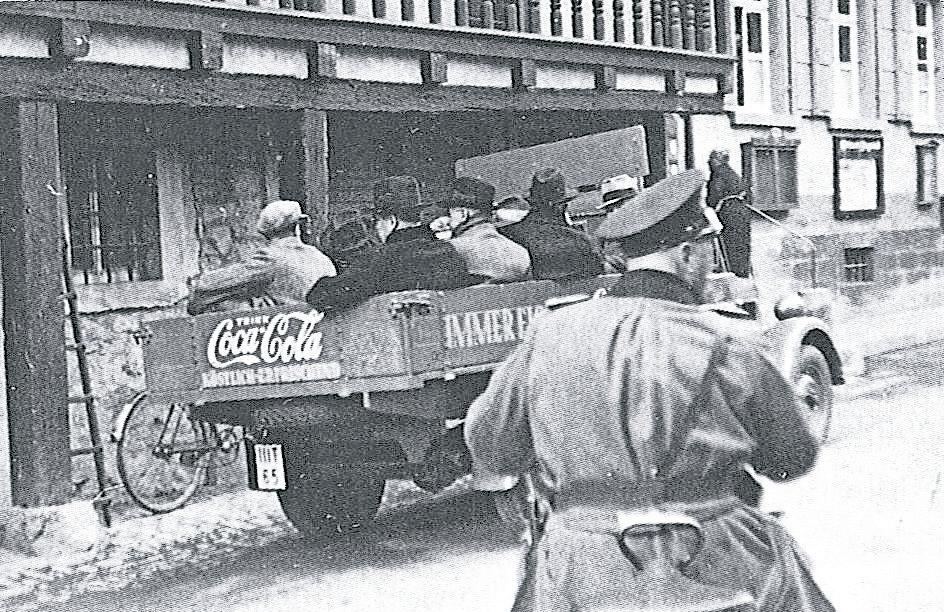

ity tour of the camp. (Register at.riverdaley.org/auschwitz)
•On Sunday, Nov. 9 from 10 am to 2 pm, an annual Jewish book and Judaica sale in commemoration of Kristallnacht will take place at the Riverdale Y’s Sunday Market, in the St. Gabriel’s Playground, 3407 Netherland Ave.
faith Education Center at Manhattan University.
•On Wednesday, Nov. 12 at 6 pm, Manhattan University will remember Herbert and Aryeh Ziering, in Room 100 of the O’Malley Library. Herman Ziering’s recent yahrzeit, observed Oct. 30, will be noted, alongside the loss of his grandson, Aryeh Ziering, who was killed fighting Hamas terrorists while defending his country on Oct. 7, 2023. This event will commemorate both Herman and Aryeh through the words of Debby Ziering, Herman’s daughter and Aryeh’s aunt.
The event is free and the public is invited to attend to
Kirchheimer will discuss Kristallnacht and its legacy, read poems from her book, “How to Spot One of Us” and present a clip from her film, “AFTER: Poetry Destroys Silence.”
learn more about this tragic event. (Register at thebayit. org/kristallnacht)
•On Monday, Nov. 10 at 7 pm, the Riverdale Y will present “Auschwitz, A Virtual Reality Tour,” with participants wit-
nessing the haunted grounds of Auschwitz and honoring the martyrs of the Shoah.
Rabbi Yisrael Goldwasser, an internationally acclaimed speaker about the Holocaust, will narrate the virtual real-
Hundreds of Jewish books on diverse topics (including Torah, Talmud, Halakhic literature, philosophy and mystical literature, musar, modern Jewish literature, the Holocaust, Jewish History, holidays and more) will be available along with Jewish related items including kiddush cups, Passover and Chanukah plates and menorahs, mezuzahs and home decor.
Proceeds will help support the Holocaust Museum and Study Center at Bronx High School of Science and the Holocaust, Genocide and Inter-
The Holocaust, Genocide, and Interfaith Education Center at Manhattan University recently completed the digitization of Holocaust survivor Herman Ziering’s entire collection. Refreshments will be served. (No registration required.)

Jewish Star Torah columnists: Rabbi Benny Berlin, spiritual leader of BACH Jewish Center in Long Beach; Rabbi Avi Billet of Anshei Chesed, Boynton Beach, FL, mohel and Five Towns native; Rabbi Binny Freedman, rosh yeshiva of Orayta, Jerusalem; Dr. Alan A. Mazurek, former ZOA chair, retired neurologist, living in Great Neck, Jerusalem and Florida.
Contributing writers: Rabbi Sir Jonathan Sacks zt”l, former chief rabbi of United Hebrew Congregations of British Commonwealth; Rabbi Yossy Goldman, president South African Rabbinical Association; Rabbi Dr. Tzvi Hersh Weinreb, OU executive VP emeritus.
To submit commentary, inquire at: Editor@TheJewishStar.com. Contact our columnists at: Columnist@TheJewishStar.com.
Fri Nov 7 / 16 Cheshvan
Vayera
Five Towns candles: 4:26 • Havdalah: 5:34
Scarsdale candles: 4:26 • Havdalah: 5:27
Fri Nov 14 / 23 Cheshvan
Chayei Sarah • Shabbat Mevarchim
Five Towns candles: 4:20 • Havdalah: 5:28
Scarsdale candles: 4:19 • Havdalah: 5:21
Fri Nov 21 / 1 Kislev
Toldot
Five Towns candles: 4:15 • Havdalah: 5:23
Scarsdale candles: 4:14 • Havdalah: 5:16
Fri Nov 28 / 8 Kislev
Vayetzei
Five Towns candles: 4:11 • Havdalah: 5:20
Scarsdale candles: 4:15 • Havdalah: 5:14
Five Towns Candlelighting: From the White Shul, Far Rockaway, NY
Scarsdale Candlelighting: From the Young Israel of Scarsdale, Scarsdale, NY

It is one of the most famous scenes in the Bible. Abraham is sitting at the entrance to his tent in the heat of the day when three strangers pass by. He urges them to rest and take some food. The text calls them anashim (men). They are in fact angels, coming to tell Sarah that she will have a child (Genesis 18).
The chapter seems simple. It is, however, complex and ambiguous. It consists of three sections:
Verse 1: G-d appears to Abraham.
Verses 2-16: Abraham and the men/angels. Verses 17-33: The dialogue between G-d and Abraham about the fate of Sodom.
How are these sections related to one another? Are they one scene, two, or three? The most obvious answer is three. Each of the above sections is a separate event. First, G-d appears to Abraham, as Rashi explains, “to visit the sick” after Abraham’s circumcision. Then the visitors arrive with the news about Sarah’s child. Then takes place the great dialogue about justice.
Maimonides suggests (in Guide for the Perplexed II:42) that there are two scenes (the visit of the angels, and the dialogue with G-d). The first verse does not describe an event at all. It is, rather, a chapter heading.
The third possibility is that we have a single continuous scene. G-d appears to Abraham, but before He can speak, Abraham sees the passersby and asks G-d to wait while he serves them food. Only when they have departed — in verse 17 — does he turn back to G-d, and the conversation begins.
How we interpret the chapter will affect the way we translate the word Adonai in the third verse. It could either mean (1) G-d or (2) “my lords” or “sirs.” In the first case, Abraham would be addressing Heaven. In the second, he would be speaking to the passers-by.
Several English translations take the second option. Here is one example:
The L-rd appeared to Abraham. … He looked up and saw three men standing over against him. On seeing them, he hurried from his tent door to meet them. Bowing low, he said, “Sirs, if I have deserved your favor, do not go past your servant without a visit.
The same ambiguity appears in the next chapter, when two of Abraham’s visitors (in this
Did Abraham interrupt G-d as He was about to speak?

chapter they are described as angels) visit Lot in Sodom:
The two angels came to Sodom in the evening while Lot was sitting by the city gates. When he saw them, he rose to meet them and bowing low he said, “I pray you, sirs, turn aside to your servant’s house to spend the night there and bathe your feet.” Gen. 19:2
Normally, differences of interpretation of biblical narrative have no halachic implications. They are matters of legitimate disagreement. This case is unusual, because if we translate Adonai as “G-d,” it is a holy name, and both the writing of the word by a scribe, and the way we treat a parchment or document containing it, have special stringencies in Jewish law. If we translate it as “my lords” or “sirs,” then it has no special sanctity.
The simplest reading of both texts — the one concerning Abraham, the other, Lot — would be to read the word in both cases as “sirs.” Jewish law, however, ruled otherwise. In the second case — the scene with Lot — it is read as ‘sirs’, but in the first it is read as “G-d.”
This is an extraordinary fact, because it suggests that Abraham interrupted G-d as He was about to speak, and asked Him to wait while he attended to his guests. This is how tradition ruled that the passage should be read:
The L-rd appeared to him. … Abraham looked up and saw three men standing nearby. The moment he saw them, he ran from the opening of his tent to greet them and bowed down low to
the ground. [Turning to G-d] he said: “My L-rd, if I have found favor in your sight, please do not pass by your servant. [Please wait for me until I have given hospitality to these men].” [He then turned to the men and said:] “Let a little water be brought so that you may wash your feet and rest under the tree.” Genesis 18:1-5
This daring interpretation became the basis for a principle in Judaism: “Greater is hospitality than receiving the Divine Presence.” Faced with a choice between listening to G-d, and offering hospitality to [what seemed to be] human beings, Abraham chose the latter. G-d acceded to his request, and waited while Abraham brought the visitors food and drink, before engaging him in dialogue about the fate of Sodom.
How can this be so? Is it not disrespectful at best, heretical at worst, to put the needs of human beings before attending on the presence of G-d?
What the passage is telling us, though, is something of immense profundity. The idolaters of Abraham’s time worshipped the sun, the stars, and the forces of nature as gods. They worshipped power and the powerful. Abraham knew, however, that G-d is not in nature but beyond nature. There is only one thing in the universe on which He has set His image: the human person, every person, powerful and powerless alike.
The forces of nature are impersonal, which is why those who worship them eventually lose their humanity. As the Psalm puts it:
Their idols are silver and gold, made by human hands. They have mouths, but cannot speak, eyes, but cannot see; they have ears, but cannot hear, nostrils but cannot smell… Their makers become like them, and so do all who put their trust in them. Psalm 115
You cannot worship impersonal forces and remain a person: compassionate, humane, generous, forgiving. Precisely because we believe that G-d is personal, someone to whom we can say “You,” we honor human dignity as sacrosanct. Abraham, father of monotheism, knew the paradoxical truth that to live the life of faith is to see the trace of G-d in the face of the stranger.
It is easy to receive the Divine Presence when G-d appears as G-d. What is difficult is to sense the Divine Presence when it comes disguised as three anonymous passers-by. That was Abraham’s greatness. He knew that serving G-d and offering hospitality to strangers were not two things but one.
One of the most beautiful comments on this episode was given by Rabbi Shalom of Belz who noted that in verse 2, the visitors are spoken of as standing above Abraham [nitzavim alav]. In verse 8, Abraham is described as standing above them [omed alehem]. He said: at first, the visitors were higher than Abraham because they were angels and he a mere human being. But when he gave them food and drink and shelter, he stood even higher than the angels. We honor G-d by honoring His image, humankind.
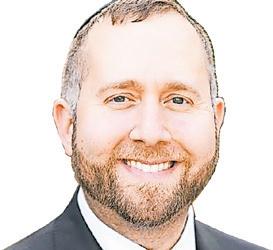
My son just started Sunday school. While my wife takes him and a carpool of boys to school, I bring our other two sons to shul. My two-year-old can’t sit quietly through Shemoneh Esrei yet, and my four-year-old isn’t quite ready either, so I set up two chairs outside the sanctuary and keep them occupied with snacks and picture books.
I slip in for Kedusha and Barchu when I can. I’ve been trying to arrange a babysitter and fig-
ure out a better system for Sunday mornings. But as I juggle these roles, I find myself wondering, I’m the rabbi here, but what does G-d want from me right now?
Inspiring a congregation is important, but at that moment, I remembered a mussar I heard from Rabbi Penner. It is a teaching that applies to any aspiring communal leader. It comes from a remarkable pasuk that defines Avraham’s greatness. An unexpected pasuk
For I have known him, that he will command his children and his household after him, that they shall keep the way of G-d to do righteousness and justice.”(Bereishis 18:19)
That pasuk really puts things into perspective. G-d’s pride in Avraham isn’t about public miracles or leading nations. It’s about guiding
his own children toward tzedakah and mishpat, righteousness and justice.
Right now, we are in Mar Cheshvan, a month with no holidays or big events. The sukkah is put away and stored, and Chanukah is still weeks away. It’s a quiet time, but that quiet matters. This is when the inspiration from the chagim needs to become part of our daily lives.
Growth isn’t about quick spiritual highs. It’s a lifelong journey. Real change happens not during
Neilah, but in Mar Cheshvan, as we return to normal life. That’s why we read Bereishis now. After the powerful days of the Yamim Noraim, we go back to our roots. We see Avraham, Yitzchak, and Yaakov not just as legends, but as fathers. These parshiyos remind us that holiness starts with small, quiet choices at home, with family.
In Charan, Avraham had already built a following. The Torah says, “the souls that they had made in Charan” (Bereishis 12:5). There were thousands whom Avraham and Sara had inspired. When G-d told him to leave, he assumed he was meant to continue that success in Canaan, to bring monotheism to the whole world. He even brought Lot, his last close relative, along with many followers.

ARussian Jew named Yisrael [Irving] Beilin wrote the song “G-d Bless America” as a paean to his beloved adopted country. The song became so popular that it rivaled the “Star Spangled Banner,” to the point many wanted to install it as the new national anthem.
A beautiful song, full of poetry and sentiment, eminently singable (as opposed to Francis Scott Key’s beer hall ditty), I always wondered where this yid from Russia got the idea for this instant classic. Although not tradition-
ally religious, I wondered if he went to cheder and learned Lech Lecha, the parsha we read last week, where Hashem informs Avraham Avinu, “I will bless those who bless you, and him who curses you I will curse.”
Yet in the same parsha, in a brilliant example of foreshadowing, we read of how Avraham’s nephew Lot settles in Sodom, a city described as filled with people “ra’im v’chataim la’shem meod (wicked and sinful to Hashem, exceedingly).”
This week in parshat Vayera, we will read about the destruction of this city so evil that it is the paradigm for a place of evil.
Iwrite this from the holiest of cities, Jerusalem just before Election Day in America, where New Yorkers — including perhaps one-third of the city’s Jewish voters — were
expected to elect as mayor a rasha who’s name resembles mamzeri Sodom had Avraham Avinu beseeching G-d Himself on their behalf. Who is negotiating with Hashem on New York’s behalf?
Meanwhile, America is a house divided, and as our own American “Abraham,” Lincoln, warned us: “A house divided cannot stand. Contrast this with Israel.
Despite our differences, virtually everyone loves their country. We wondered whether the “tik-tok” generation would
be up to the challenge, yet they exceeded all expectations, showing up and staying strong after October 7. They believe in their country, their faith, their families, and themselves.
This is the way things used to be in America.
We are still the best educated, richest country in the world, and every one wants to come to the US, legally or otherwise. So what is holding us back? Are we evil? Are we the New Sodom destined to destruction? I don’t think so. Rather, I think we’ve lost a national will because we are no longer a serious country.
The truth of this and why Israel is a serious country and capable and the United States increasingly is not , was painfully illustrated to me while walking to shul in Modiin this past
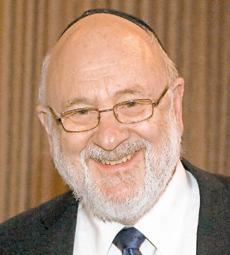
Inever thought that I would begin a discussion of the weekly Torah portion by referring to a person who was canonized as a saint by the Catholic Church. Never, that is, until I sat down to write this week’s column.
The person in question is Sir Thomas More (1478-1535), the great jurist and counselor to the notorious King Henry VIII, who was beheaded because of his insistence that the Catholic Church — and not King Henry — was his
supreme religious authority.
I have long admired Sir Thomas because of his courage and also because of his wisdom. He earned a prominent place in the world literature because of his classic work, “Utopia,” in which he imagines the ideal society, one that is perfectly just and fair.
Centuries after More’s martyrdom, at least two of his countrymen found it necessary to seek a word which would signify a perfectly evil society. They searched for an antonym to “utopia.” In the early 19th century, Jeremy Bentham introduced the word “cacotopia,” defining it as a nightmare society in which morals mean nothing. Bentham’s follower, the philosopher John Stuart Mill, preferred the term “dystopia” and that word stuck.
This week’s Torah portion, Vayera, tells the story of the world’s first “dystopia,” Sodom. We first encounter this “nightmare society” in last week’s parsha, Lech Lecha. There, we read of Lot’s decision to leave his Uncle Abram’s company and “pitch his tents near Sodom.” Immediately, the Torah interjects: “Now the inhabitants of Sodom were very wicked and sinful against the L-rd.” The careful reader of this phrase won-
ders, “What exactly did they do to deserve such a malignant biblical review? What behaviors were so wicked and sinful?”
The rabbinic commentators, from the Talmud and Midrash down to our very own times, expand upon this description of Sodom and fill in some of the details for us. Rashi briefly summarizes some of the Talmud’s views: “They were wicked with their bodies, sinful with their material possessions, and were intentionally rebellious against G-d.” They violated sexual mores, were unethical in their business dealings, and based their behavior upon a corrupt theology.
The great medieval commentator, Rabbenu Bachya ben Asher, elaborates even further by referring to a passage in the Book of Ezekiel that

One of the great desires and aspirations of millions is to find revelation, to “see the light” and understand the purpose of life. How many people over the ages have asked, appealed and pleaded to the Almighty, “Please, G-d! Give me a sign! Show Yourself to me so I know I am not walking in darkness but am on the right, true path in life.”
“I come to shul week after week, Shabbat after Shabbat — and nothing! They open the Holy
Ark, read the Torah, give sermons and still not a glimmer of revelation!” (Whether we actually do any praying, or we just shmooze with our friends and have a few l’chaims at the kiddush, is another question.)
The opening line of this week’s Torah portion, Vayera, is, “And G-d appeared to him [Abraham].” It was three days after Abraham’s brit milah at age 99, and G-d came to visit the sick. This was not Abraham’s first revelation, but it is the very title of our Torah portion.
Alittle boy, Sholom Ber, was taught this story in his cheder. This boy would become a great rabbi, known as the Rebbe Rashab, but at age 4 or 5, he first heard the story of G-d visiting Abraham. Afterward, he rushed into the study of his illustrious grandfather, the
Tzemach Tzedek of Lubavitch, and was literally crying: “Why did G-d appear to Abraham, but He doesn’t appear to us?”
His grandfather was not dismissive of the little boy’s question and answered him earnestly: “When a Jew, a tzaddik, at the age of 99, decides that it is time to undergo a brit, then he is indeed worthy of revelation.”
Circumcision is perfecting the body, entering a permanent and eternal covenant with G-d. It means we acknowledge that we are not there yet
and still need to develop ourselves spiritually, morally and ethically. If, at age 99, after having achieved so much in life, Abraham still felt he was lacking and in need of moral improvement, then he was indeed worthy of Divine revelation. The Lubavitcher Rebbe told this story on numerous occasions over the years. His basic message was twofold.
•First, even a child can demand revelation; it may be a child in years or a child in terms of one’s spiritual awareness.
•Second, revelation doesn’t come casually out of the blue; one must earn it. Abraham had transformed the world from paganism to belief, serving the Almighty faithfully for a lifetime. He had passed many difficult tests of faith already.
Published weekly except during certain religious and civil holidays by The Jewish Star LLC New York City office: 5676 Riverdale Ave Suite 311, Bronx NY 10471 • LI office: 2 Endo Blvd, Garden City NY 11530 Here’s how to reach The Jewish Star — Write: Editor@TheJewishStar.com. Call: 516-622-7461 ext 291
Editor & Publisher: Ed Weintrob
516-622-7461 ext 291
Jewish Star Associate: Nechama Bluth
516-622-7461 ext 241
Content: The Publisher endeavors to ensure that our content is within the bounds of normative halachah and hashkafah. Anyone who feels anything we publish may be inappropriate in this regard is urged to bring the item in question to the attention of the Publisher.
Advertising is accepted at the sole discretion of the Publisher and should conform to standards appropriate for distribution in an Orthodox community. Send us your news! Editor@TheJewishStar.com
Advertising: Publisher@TheJewishStar.com
Kashrut: The Jewish Star is not responsible for the
kashrut of any product or establishment featured in its pages. If you have questions regarding any establishment or product, including its supervision, please consult your rabbi for guidance.
Submissions: All submissions become the property of The Jewish Star and may be edited and used by the Publisher, its licensees and affiliates, in print, on the web and/or in any media that now exists or will exist in the future in any form, including derivative works, throughout the world in perpetuity, without additional authorization or compensation. The individual or entity submitting material affirms that it holds the copyright or otherwise has the right to authorize its use in accordance with The Jewish Star’s terms for submissions.
Opinions: Views expressed by columnists and other writers do not necessarily reflect the position of the Publisher or of The Jewish Star LLC.
Distribution: The Jewish Star is available free in kosher food establishments, stores, synagogues, and curb-side newsboxes on Long Island, in New York City and elsewhere. To request free delivery to your location, write Publisher@TheJewishStar.com.
Copyright: All content is copyright and may not be republished or otherwise reproduced without written permission by The Jewish Star; to do so without permission is against the law and halacha. For content reproduction write to Publisher@TheJewishStar.com.
The Jewish Star subscribes to JNS. It, or its contributors, own the copyrights on material attributed to them. The length and content of JNS material and all other submitted material may be edited by The Jewish Star.
Member: American Jewish Press Association.
This newspaper contains words of Torah. While it is not considered shaimos, please dispose properly.
Mitchell Bard, foreign policy analyst, authority on USIsreal relations; Ben Cohen, senior analyst, Foundation for Defense of Democracies; Stephen Flatow, president, Religious Zionists of America-Mizrachi and father of Alisa Flatow, murdered in an Iranian-sponsored Palestinian terrorist attack in 1995; Yisrael Medad, Americanborn Israeli journalist and political commentator; Rafael Medoff, founding director of David S. Wyman Institute for Holocaust Studies; Fiamma Nirenstein, Italian-Israeli journalist, author of 13 books, leading voice on Israeli affairs, Middle Eastern politics and antisemitism; Melanie Phillips, British journalist; Moshe Phillips, national chairman, Americans for a Safe Israel; Thane Rosenbaum, Distinguished University Professor at Touro University (published by Jewish Journal); Jonathan S. Tobin, editor-in-chief, Jewish News Syndicate.

If history over the last century taught anything, it’s that one issue can bring extremists from both the left and the right together: Jews and the State of Israel.
The question that Americans should be pondering right now, however, is not so much the way Jew-hatred has surged on the margins of society since the Hamas-led Palestinian Arab attacks on Israel on Oct. 7, 2023. Rather, it is the way that animus — not just for the Jewish state but also for its American supporters and Jews in general — has gone mainstream.
What seems to be the end of the post-Oct. 7 war might have signaled an ebbing of the tide of antisemitism. But it hasn’t. In fact, the weeks since the ceasefire in Gaza have demonstrated that the surge of antisemitism is not only going strong but has firmly established itself within both major political parties in a virtually unprecedented way.
•Among Democrats, that was made clear by the way that their leadership has not only failed to stop or isolate Zohran Mamdani, the party’s openly antisemitic candidate for mayor of New York City.
•Meanwhile, mainstream institutions on the right and leading Republicans have not only declined to disassociate themselves from political commentator Tucker Carlson but have now rallied to his defense. They also seem ready to defend the platforming of the anti-Jewish rhetoric of Nick Fuentes, a neo-Nazi hate-monger whom Carlson had on his podcast.
In both cases, what we are witnessing is a betrayal not merely of American Jewry and the pro-Israel community, but of basic American values of decency. What makes it worse is that there appear to be few people of stature or power in either party who seem interested in
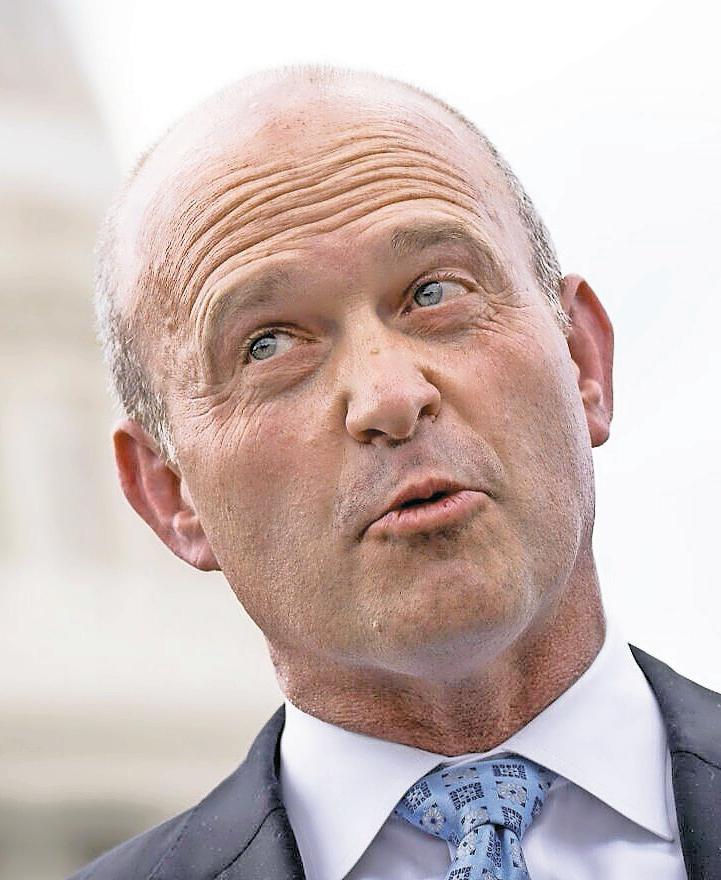

confronting these despicable men. That makes it a near-certainty that this problem is only going to grow worse in both parties.
Intersectional antisemitic left
It took Zohran Mamdani — a heretofore obscure New York state assemblyman who identified as a Democratic Socialist — to make clear just how strong the pull of anti-Israel and antiJewish sentiment was within his party.
The loadstone of the 34-year-old Mamdani’s career has been his ideological commitment to Israel’s destruction, starting from his student days as founder of a chapter of the antisemitic Students for Justice in Palestine at Bowdoin College in Maine. As late as 2023, he was stating that Israel was somehow the explanation for the alleged oppression of minorities by the New York City Police Department, a classic antisemitic trope in which Jews are always the reason for the ills in the world. And it continues to this day, when, dur-
As Democrats embraced Mamdani, the Heritage Foundation stood by Tucker Carlson and his platforming of Jew-hatred. There’s a crisis on both sides of the aisle.
ing the recent mayoral candidate debates, he recycled Hamas propaganda, including blood libels about Israel committing “genocide” in Gaza.
Yet rather than seek to stop him, with few exceptions, mainstream Democrats have rallied around him, believing that the Jew-hatred he has spread is as popular with young voters as the Socialist patent nostrums about bringing them cheaper housing and groceries, in addition to free bus rides.
The Jewish establishment was slow in realizing that so-called progressives indoctrinated in the toxic ideas of critical race theory, intersectionality and settler-colonialism that had conquered academia and most other sectors of American life was the engine of 21st-century Jew-hatred. For too long, they had focused on the antisemitism that existed on the far right, which didn’t have the clout or influence of their counterparts on the left.
It is the sort of thing that has enabled conservatives to argue in recent years that while the left has become a sinkhole of antisemitic Israel-bashing, the political right — led by President Donald Trump — is a bastion of pro-Israel sentiment.
But it’s time to acknowledge that this dismissal of right-wing antisemitism is no longer valid. And the person who made this necessary is Carlson.
Since he was fired from Fox News in April 2023, Carlson has allowed his hatred for Israel and its supporters to be open and unfiltered. Still, it wasn’t until he hosted Holocaust denier and antisemite Daryl Cooper on his podcast that any doubt about his views was removed. Even after he publicly opposed Trump’s pro-Israel and anti-Iran policies, he continued to be a member of the presidential family’s inner circle, with leading conservatives including the late Charlie Kirk, Megyn Kelly and Matt Walsh refusing to disassociate themselves from him.
The fact that he received a prominent speaking slot at Kirk’s memorial service on Sept. 21, where he employed a crude antisemitic trope employing the deicide myth, also demonstrated that he remained a mainstream player in conservative and Republican circles.
Carlson reached a new low this week when he welcomed neo-Nazi Holocaust denier and vicious Jew-hater Nick Fuentes onto his podcast, raising this question: Would he succeed in mainstreaming antisemitism on the political right in much the same way that woke progressives have done to the left.
We didn’t have long to find out the answer to that question. And it came from a surprising source — the Heritage Foundation, a Washington think tank that has been one of the intellectual hubs of conservative thought and activism.
In a video posted on X, Kevin Roberts, president of Heritage, made it clear that not only was he refusing to distance himself and his organization from Carlson, but that he was doubling down on this stand.
In a brief speech, Roberts denounced those who have criticized Carlson’s platforming of antisemitism and his vicious attacks on Israel and Christian Zionists, whom the podcaster described as heretics who had a “brain virus.” Roberts said Heritage didn’t believe in “canceling our own people or policing the consciences of Christians” and depicted those appalled by Carlson as a “venomous coalition” who engage in “slander” that “serves someone else’s agenda.”
Roberts said Heritage supported cooperation with Israel when it served US interests — something no one disputes. But the Heritage president seemed to echo some of the dark rhetoric of the far left and far right when he spoke of those who “reflexively support” the Jewish state as “loud”
Distinguished University Professor Touro College
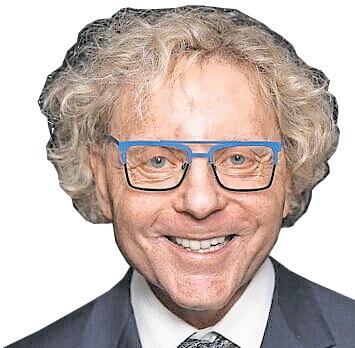
What is it with vice presidents of the United States when they visit college campuses and are asked almost anything about Israel? They end up as tongue-tied as Coldplay’s frontman, Chris Martin, at Wembley Stadium (who welcomed two Israeli teenage girls on stage and then succumbed to this brain freeze: “I am treating you as equal humans on earth, regardless of where you come from”).
The rock star mercifully decided to treat the girls as human beings even though, as Israelis, they were undeserving of Homo sapiens status.
When Kamala Harris, as vice president, visited George Mason University in 2021, a burqaclad female railed against Israel’s “ethnic genocide and displacement of [her] people.” Harris replied, “Your voice, your perspective, your experience, your truth cannot be suppressed, and it must be heard.”
In 2024, while making a campaign stop at the University of Wisconsin, a male student heckled, “The billions of dollars in genocide you invested in.” As he was ushered out of the auditorium, she replied, “Listen, what he’s talking about, it’s real. It’s real. … I respect his voice.”
Last week, at a Turning Point USA rally at the University of Mississippi, Vice President JD Vance entertained a question from a man wearing a “Make America Great Again” baseball cap and an “Ole Miss” hoodie. He said:
vice
I’m a Christian man and I’m just confused why that there’s this notion that we might owe Israel something or that they’re our greatest ally or that we have to support this multi-hundred-billion-dollar foreign aid package to Israel to cover this — to quote Charlie Kirk, ethnic cleansing in Gaza. … [N]ot only does their religion not agree with ours but also openly supports the prosecution of ours.
He received decent applause from a student body that knew even less than he did.
Where to start? A Christian should not support the only Jewish nation even though Christ was once a Jew and Israel painstakingly preserves all the holy sites where Christ once walked and preached?
The foreign aid package is approximately $3.3 billion each year, not “multi-hundred-billion dollars.” It represents less than five percent of America’s entire annual foreign aid. Israel purchases its weapons from American military defense contractors, based on Israeli technology. That means that aid to Israel supports America’s economy and its high tech defends America’s homeland.
Charlie Kirk never once accused Israel of genocide. Judaism may not agree that Jesus Christ is the Messiah, but Judeo-Christian values serve as bedrock principles of Western civilization and democratic liberalism. Islam, by contrast, is engaged in a forever war with Juda-

ism and Christianity.
Finally, in the United States, the solidarity between Christians and Jews is ironclad, but where, exactly, on Earth are Jews “prosecuting” Christians?
Vance could have quite easily dispatched the incoherent argument this young man was making. Instead, the Vice President responded: “[W]

Ican think of three people who will be delighted by the election last week of pro-Hamas presidential candidate Catherine Connolly in the Republic of Ireland. Two of them I can name: Zena Ismail and Lena Seale. The third person is unidentified, so I will go with “man on the bus.”
All three have engaged in violence against Jews this year in the name of defending Palestinians. In March, Ismail and Seale assaulted Israeli businessman Tamir Ohayon while he was drinking with a colleague in a Dublin bar, with Ismail spitting on him for good measure.
Then, in July, the man on the bus attacked a Jewish passenger while ranting about “genocidal Jews.” A woman on the bus who attempted to rein him in was also subjected to abuse for defending “genocidal Jews.”
This thuggish, Nazi-like behavior now enjoys official sanction. Were Connolly not the holder of a public office, I can easily envisage her engaging in similar actions — or at least egging on those who do.
Despite having only entered the presidential contest in July, when the widely favored candidate Mairead McGuinness withdrew due to ill health, Connolly won by a landslide with 63% of the vote. Her triumph is a testament to the hold the keffiyeh cult has over the Irish imagination,
Connolly is set to be a major component of the global movement to isolate and weaken Israel.

which still nurses grievances over the legacy of British colonization and which sees its own independence struggle as a mirror image of the Palestinian one.
As is the case elsewhere in Europe, pro-Hamas demonstrations are frequently staged in Dublin and other Irish cities, with thousands of attendees eagerly embracing the ludicrous identity of “Paddystinians.”
These mass outbursts have been stoked by the Irish government, which has actively endorsed false accusations of “genocide” against Israel and has advanced an “Occupied Territories Bill” through parliament that severely restricts trade with the Jewish state. Against this background, it’s legitimate to ask whether Connolly will be worse than her long-serving predecessor, Michael Higgins, whose carefully choreographed avuncular style belied his habit of promoting outlandish antisemitic conspiracy theories, such as the claim that Israel seeks to build settlements in Lebanon, Syria and Egypt.
A representative of the far left, Connolly has denounced Israel as a “terrorist state.” She has defended Hamas in the face of the insistence of the United States, the United Kingdom, France, Germany and other Western states that the Iranian-backed terrorist organization be denied a role in the governance of a post-war Gaza.
Describing Hamas as “part of the fabric of the Palestinian people,” she is not averse to issuing her own “Paddystinian” statements. “I come from Ireland, which has a history of colonization,” she told the BBC earlier this year. “I would be very wary of telling a sovereign people how to run their country.”
Ople, “Palestine today is the stage to prove whether or not we will live in a truly decolonized world.”
The message sent to the residents of the city of El-Fasher in Sudan, who last week were driven from their homes amid bestial atrocities committed by the Rapid Support Forces (RSF), as well as to the thousands of Ukrainian children illegally abducted by the Russian invaders, is that they don’t count.
In fact, Russian imperialism is not just exempted. In Connolly’s case, it receives a full-throated endorsement.
An uncompromising backer of Irish neutrality that was famously on display during World War II, she opposes greater Irish contributions to the defense of Europe. She has additionally criticized NATO’s eastward expansion, accusing the alliance of playing “a despicable role in moving forward to the border and engaging in war-mongering,” believing that the greatest threat posed by the Russian invasion of Ukraine is the “militarization” of Europe.
As Rachelle Moiselle, a keen observer of the Irish scene, has observed, Connolly also has a nasty habit of referring to Ukraine as “the Ukraine,” as if the country is a geographical feature rather than an independent state allied with the West. So much, then, for not telling “a sovereign people how to run their country,” unless you believe, as Connolly clearly does, that Ukraine is a province of a Greater Russia.
Perhaps Connolly’s greatest offense was her homage to the now-deposed Syrian President Bashar Assad in 2018.
Standing in the rubble of Aleppo, relentlessly bombed by the Russian forces supporting Assad during the civil war, she offered her solidarity to this exemplar of Arab dictators, despite Assad reducing the Palestinian neighborhood of Yarmouk on the outskirts of Damascus from — as one Palestinian witness memorably put it — “a thriving neighborhood of hundreds of thousands of people into a desperate population of 18,000 waiting to die.” GLOBAL
To my mind, the answer is yes.
ne of the core doctrines of Palestinianism is that “Palestine” is the only issue that matters and that other international crises — from Ukraine to Kurdistan to Sudan — are either politically suspect or simply irrelevant. As Francesca Albanese, the UN special rapporteur for the Palestinians, expressed it at an Oct. 30 briefing organized by the UN’s Committee on the Exercise of the Inalienable Rights of the Palestinian Peo-
melanie phillips
British journalist

In Britain and the United States, there are signs that creeping Islamization has now accelerated to a gallop.
Until recently, America viewed the erosion of Western norms by Islam as a British and European problem from which America was largely immune. That is now far from the case.
Last week, the 34-year-old Democratic Socialist Zohran Mamdani, a New York state assemblyman who was expected to be chosed as mayor in Tuesday’s election, posted pictures of himself at Masjid At-Taqwa mosque in Brooklyn, with its imam, Siraj Wahhaj, who he described as one of the nation’s foremost Muslim leaders.
At the time of the 1993 bombing of the World Trade Center, this mosque was attended or visited by various people connected to that attack. The imam pictured smiling alongside Mamdani was an unindicted co-conspirator in that bombing and testified as a character witness for Omar Abdel-Rahman, the “blind sheikh” who led that conspiracy.
Wahhaj has said: “I will never, ever tell people, ‘Don’t be violent, that is not the Islamic way.’ The violence has to be selected.”
He has been extremely clear that he is working for Islam to destroy America.
“You don’t get involved in politics because it’s the American thing to do,” he said. “You get involved in politics because politics are a weapon
What President Trump is helping Israel fight in the Middle East is rampant in his own backyard.
to use in the cause of Islam. Wherever you came from, you came to America. And you came for one reason — for one reason only — to establish Allah’s deen [‘law’ or ‘way of life’ in Arabic].” And he predicted: “Democracy will crumble, and there will be nothing, and the only thing that will remain will be Islam.”
This is the man extolled as a role model by the probable next mayor of New York.
Mamdani’s brazen gesture in visiting this mosque was intended to normalize Islamist extremism in America and show that it is in the ascendant because no one is even trying to stop it.
What’s not commonly understood is that Mamdani is a Shia Muslim “Twelver,” a member of the sect that believes the “Twelfth Imam,” or Shia messiah, will be brought to earth in an apocalypse. The most prominent Twelver in the world is the Iranian Supreme Leader, Ayatollah Ali Khamenei, as was his predecessor, Ayatollah Ruhollah Khomeini, and other leaders of the Tehran Islamist regime.
Both Shi’ite and Sunni Muslim extremists share the apocalyptic goal of exterminating Israel and the Jews as a precursor to destroying America and the West, and installing Islam

throughout the world.
Mamdani has said that his faith is very important to him. How that squares with his radical chic LGBTQ+ agenda isn’t immediately obvious.
President Donald Trump has said New York is about to elect a Communist as mayor. But more alarmingly, what Trump is helping Israel fight in the Middle East is rampant in Trump’s own backyard.
miTChel
aeDeR
OU President

When Rabbi Moshe Hauer stepped down as the full-time rabbi at Bnai Jacob Shaarei Zion Congregation in Baltimore, a position he held for 26 years, to become executive vice president at the Orthodox Union in 2020, he could have announced the move from the pulpit or sent an email to the congregation.
Instead, he called or met with each congregant individually to explain the change and to promise to remain available to them and be part of their lives. And indeed, he did so, commuting weekly between New York and Baltimore. This is just one of many stories that capture Rabbi Hauer’s sensitivity and personal connection.
For the past five years, as part of the leadership of the OU, I had the honor and blessing of working very closely with him, who tragically and suddenly passed away on Oct. 14, on Shemini Atzeret. I was his boss, but he was my rebbe.
Rabbi Hauer loved the Torah. He was a master teacher, capable not only of explaining complicated talmudic and philosophical works but also contextualizing them in a
Rabbi Hauer developed genuine friendships with Jews and non-Jews from different backgrounds and across the political spectrum.
way that made them alive and relevant. While still a shul rabbi, he was teaching more than 20 shiurim weekly. After joining the OU, he had to reduce the number of lessons, though he still taught daily.
He used his OU platform to convey sophisticated and relevant Torah thoughts to an international audience.
The rabbi was kind, articulate and warm. More than anything, he cared. He cared deeply about the OU staff (and their families), about the war in Israel, about the hostages, about single mothers, about people in the community who were lonely, about young Jews on college campuses — the list goes on and on. It showed in his daily work.
He elevated us, helping us make better decisions. When we would visit various OU programs, he wanted to spend his time with the participants rather than the leaders.
This was true no matter where he went. And he went many places, especially in his tireless efforts to stand up for and defend the Jewish people, and the place of religion and religious freedom in America, to push for the safety of all Jews and to advocate for Israel. From the halls of Congress to meeting with leaders of other faiths who shared common goals, his voice was always out there, engaging with others.
He was soft-spoken, putting people at ease; at the same time, he was principled and unwavering, firmly standing up for what he believed in and for what the Jewish people needed. All of his work was driven by his mission to build Jewish unity and to instill Torah values everywhere. While doing this, he showed respect and developed genuine friendships with Jews and non-Jews from many different backgrounds and communities, and across the political spectrum.
Rabbi Hauer was not only caring and passionate and driven — he was effective. He got things done, forged partnerships and built trust where few others could. His influence will be felt for generations in the programs and
In Britain, events over the past week have made it clearer than ever that Islamists are now calling the shots. Fans of the Maccabi Tel Aviv football club were banned from attending next month’s match with Aston Villa in Birmingham in response to a petition organized by two independent “Gaza first” members of parliament, Ayoub Khan and former Labour Party leader Jeremy Corbyn.
The petition, whose purpose was to cast Israel as a global pariah, said Israeli teams weren’t welcome in Britain because of “genocide” against Palestinian Arabs in Gaza. It also said the Maccabi fans should be banned as “hooligans” because of the violence that broke out when their team played the Dutch club Ajax in Amsterdam last year.
But what actually happened in Amsterdam was a pre-planned attack on the Maccabi fans that was described by the Arab and Muslim mob organizing it as a “Jew-hunt.” Israeli fans were chased through the streets, beaten unconscious and even driven into the canals to escape. The Dutch authorities themselves said it was an antisemitic attack.
Yet prominent British Muslims and other Israel-haters have accused the Maccabi fans of causing violence and disorder. They blamed a Jew-hunt on the Jews — and then said the same kind of Jews should be banned from Birmingham.
The reality was that Jews were to be kept out of Britain’s second-largest city because the Muslim community wouldn’t tolerate their presence.
Even for British Prime Minister Keir Starmer’s anti-Israel government, this crossed a line.
See Phillips on page 23

initiatives of the OU, particularly his focus on making Torah accessible through various daily learning programs, his care for individuals in need who are often overlooked and his emphasis on enabling Jewish communities to thrive. He raised us all up. He always knew what to say.
I miss him. The OU misses him. Klal Yisrael misses him.
“There is so much to do,” he would say.
And there still is.
All of us at the OU are grieving, but we are going to go back to work, to serve Klal Yisrael because that is what we do. And thanks to Rabbi Moshe Hauer, we will do it with a renewed sense of purpose and holiness. May his memory be a blessing.
Mitchel Aeder, a resident of Kew Gardens Hills, is president of the OU. Write: Columnist@ TheJewishStar.com
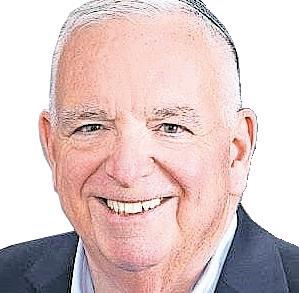
The mission statement of the International Committee of the Red Cross (ICRC) includes noble words that speak of neutrality, dignity and protection, promising “to protect the lives and dignity of victims of armed conflict and other situations of violence.”
But when it comes to Gaza and the 250 Israeli hostages seized by Hamas on Oct. 7, 2023, the Red Cross failed miserably to live up to them.
•It never insisted on access to the captives.
•It did not demand medical visits.
•It did not send verification missions.
•It did not speak out publicly.
At most, it served as a middleman in hostage releases — a courier, not a defender of human dignity. For the families of those who were held captive, that wasn’t neutrality. It was abdication.
The ICRC often defends its “quiet diplomacy.” But diplomacy that accomplishes nothing isn’t diplomacy. It’s moral surrender.
The contrast with its record elsewhere is striking. In Ukraine, the Red Cross publicly demanded access to Russian-held prisoners, negotiated site visits and issued regular press releases. In Syria and Iraq, it pushed for humanitarian corridors. In the Balkans, it was one of the first organizations on the ground documenting the fate of missing people.
Yet in Gaza, when Jews and Israelis were the victims, the Red Cross fell silent. No daily brief-

ings. No public pressure. No urgent campaign. An organization that prides itself on defending the voiceless chose to say nothing.
This is not the first time that the Red Cross has failed its own mission. During World War II, it allowed itself to be manipulated by Nazi propaganda at Theresienstadt, failing to report on the horrors it saw. In Srebrenica in 1995, its inaction left it documenting a massacre rather than preventing one.
The Red Cross likes to say it “cannot enforce” but only “advocate.” In the Gaza Strip, it didn’t even advocate with the urgency the situation required.
Hamas committed clear war crimes: kidnapping civilians, denying them food and medical care, and refusing access to international observers. The Red Cross’s silence and passivity effectively normalized that behavior.
Yes, quiet diplomacy has its place, but only
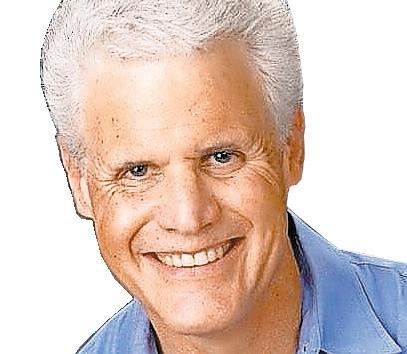
When I was growing up in the 1950s, Lenny Bruce (born Leonard Alfred Schneider) was a rising comedian. By the time I reached adolescence, he was as infamous as he was famous. Some remember him for his use of profanity on stage and his ultimately fatal addiction to drugs. Others choose to highlight his wit and biting social satire.
Several years ago, while teaching a class on Jewish identity, I was introduced to Bruce’s shtick titled “Jewish and Goyish,” described as a “humorous aim at the Jewish propensity to see the world as starkly divided,” often absurdly, between things that are “Jewish” and things that are “goyish.”
Part of the routine went:
I’m Jewish. Count Basie’s Jewish. Ray Charles is Jewish. Eddie Cantor’s goyish. … B’nai Brith is goyish; Hadassah, Jewish. … Kool-Aid is goyish. All Drake’s cakes are goyish. Pumpernickel is Jewish, and, as you know, white bread is very goyish. … Fruit salad is Jewish. Lime Jell-O is goyish. … Trailer parks are so goyish that Jews won’t go near them. Jack Paar Show is very goyish.
Given the longstanding negative feelings among Jews when it comes to guns, I can imagine his having added a line like: Playing pinochle and mahjong is Jewish. Shooting guns very goyish. Bruce has been dead for almost 50 years, and Count Basie, Eddie Cantor and Jack Paar are only remembered by senior citizens. Among many younger Jews today, the adjective goyish is considered a politically incorrect slur.
However, among most American Jews of all ages, the conventional wisdom still seems to be that guns — and anything having to do with them — remains what once was called goyishe
American Jews need to jettison the mindset of noble victimhood.
naches, that which gives non-Jews pride and pleasure and therefore is automatically considered to be anathema to Jews.
In addition to pinochle and mahjong, American Jews participate in many other hobbies and pastimes. Spending time on a shooting range, however, isn’t one of them.
Even after the gun violence at the Tree of Life synagogue in Pittsburgh in 2018, Chabad of Poway in 2019, the protests as a result of the Hamas-led massacre in southern Israel on Oct. 7, 2023, and the numerous acts of violence against Jews and Judaism committed in sympathy with those atrocities, American Jews continue to feel reticent about learning how to use firearms, even for purely defensive purposes.
It’s not that they are against armed force per se in defense of Jews and Jewish institutions. Indeed, armed security personnel are now regularly on the premises of synagogues and Jewish institutions.
For generations, American Jews have shepped naches seeing young Israeli men and women — some in uniform, some even dressed in evening clothes — schlepping their M-16 rifles. It’s just that they can’t imagine nice Jewish people like themselves “packing heat,” even to reinforce their own synagogue’s security measures.
What is the cause of this disconnect? Why do American Jews honor the likes of King David, Judah Maccabee, Simon Bar Kokhba and the Israel Defense Forces, but still believe that touching or handling firearms will make them morally shmutzig (dirty)? From my perspective, two reasons may be at the heart of this hoplophobia, or “fear of firearms and weapons.”
At most, it served as a middleman in hostage releases — a courier, not a defender of human dignity.
when it produces results. In Gaza, it produced nothing — no visits, no medical checks, no confirmation of life. The world learned about the hostages through Hamas propaganda videos, not humanitarian reports.
This wasn’t a failure of logistics but a failure of will.
Real neutrality does not mean standing by while terrorists brutalize innocent civilians. It means upholding humanitarian principles consistently. In Gaza, real neutrality would have meant pressing Hamas loudly and publicly, day after day, to allow visits to the hostages. It would have meant reminding the world that these men, women and children have rights under international law.
Instead, the Red Cross hid behind procedural language and diplomatic whispers. It became a spectator to human suffering, not a defender of human dignity.
If the Red Cross wants to be taken seriously, then it owes the hostages and their families answers:
•Why didn’t it demand access to the hostages as it has elsewhere?
•Why was it content to act as a courier rather than an advocate?

Curiously, they seem to contradict each other.
The first is that the reluctance to integrate responsible firearm use (and, for that matter, personal self-defense in general) into Jewish life and learning is a “holdover” from living as victims in the Diaspora for two millennia. For 2,000 years, suffering and dying were part of a Jew’s fate. It was our particular “cross to bear.” Throughout the history of the Diaspora, “sanctifying God’s Name” through suffering and martyrdom was understood as the reason for our plight, even as it conferred a certain nobility on us.
The second reason American Jews have not embraced a more robust approach to learning how to defend themselves is because the US experience has largely not been one of suffering and martyrdom. That is not to say that antisemitism hasn’t always existed. But until recently, violence against Jews — threatened or real — has been relatively rare. Consequently, it has
been suggested that American Jewry has been “on a vacation,” as it were, from the vicissitudes of Jewish history.
Up until now.
Recent events strongly suggest that the vacation may well be coming to an end, and therefore, we Jews need to prepare for what may be coming. Fortunately, pockets of focused preparation are appearing in Jewish communities around the country. Jews who would never think of laying hands on another person are learning martial arts, especially the Israeli version, Krav Maga. And there are some who are finally “biting the bullet” and learning how to be more comfortable around and responsibly use firearms.
With more Jews needing to wake up to what’s going on, Adam Fuller’s recent book, “The Armed Jew: The Case for Jewish Gun Ownership,” is a reasonable nudge. For those who have supported this attitude change,
Continued from page 18
sinister, globalist” forces who are somehow harming America, and that must be resisted.
He made clear that he would stick with Carlson, no matter what he did, and his only interest was in attacking the left. He said that he “disagreed with and even abhorred things that Fuentes had said,” but wouldn’t cancel him either. He treated his hatred of Jews as merely an idea that should be debated.
This is a startling turnabout for an organization with not only an honorable record of support for Israel but whose “Esther Project” to combat antisemitism has served as a blueprint for the Trump administration’s efforts to root out left-wing ideologies that are enabling Jewhatred on college campuses. Roberts’ seeming neutrality about his friend’s prejudiced behavior directly contradicts what his organization has
Continued from page 17
But G-d slowly taught him that his destiny would not lie in numbers. Egypt rejected him. Lot departed. When we see Avraham again in Vayeira, he is sitting outside his tent after his bris milah, still in pain and without a child. What happened to the souls that Avraham and Sara inspired?
Avraham is worried that his covenant will leave him alone, with no one to join him. He waits for guests, hoping someone will still want to come into his tent in the sweltering heat. G-d sends three angels, not just to heal him, but to reassure him. His future isn’t about public fame. It’s about having a son.
Then comes the statement, Ki yedativ (I know him) — because he will teach his children. That’s what true greatness is.
This message is humbling for anyone in public leadership. We hope to inspire communities, write sefarim, and change the world. We want to have our shiurim packed with people who are inspired in Torah and in mitzvos
But sometimes G-d quietly says, I need you to read bedtime stories. I need you to be present. I need you to raise your own children, because no one has been tasked with that besides you.
So I am sitting outside shul with my boys. I want to be in shul. Why can’t I figure out a babysitter during this time? Maybe I can get my parents to come in from Teaneck?
But a quieter voice reminds me, this is also avodah. And if I truly care about my congregation, then this is a lesson I need to teach them as well: The patience to read an aleph beis book while the minyan goes on inside.
Please don’t misunderstand me. Minyan is important. I truly enjoy minyan and davening to G-d sincerely. However, the small hand reaching for yours during davening is also holy.
These moments aren’t distractions from serving G-d. They are the service itself.
For I have known him, that he will command his children and his household after him (Bereishis 18:19).
That verse stays with me as I hold my sons outside the sanctuary. Sometimes, the holiest place isn’t the pulpit, but two folding chairs, whispering Shema to a restless toddler, passing on the torch that Avraham first lit.
Write: Columnist@TheJewishStar.com
Continued from page 17
Shabbat morning with my 14 year old grandson. He’s only a 14-year-old kid and I have to remind myself that in less than four short years he’ll be starting his army duty.
been trying to do in academia.
It’s especially discouraging since the real “globalist” forces in the international community are the ones whose arguments are echoed by Carlson and Fuentes, in which they promote blood libels against Israel and seek to isolate and destroy it.
JD Vance mimics Kamala Harris
Roberts’s profession of loyalty to Carlson came in the same week as a troubling response of Vice President JD Vance to questions from an Israel-hating student at a Turning Point USA event at the University of Mississippi. When given an opportunity to slap down antiIsrael conspiracy theories, he let them go unanswered, responding with what could only be described as an equivocal statement about the US-Israel relationship in which he boasted of pressuring Jerusalem during the recent cease-
We decided to take a shortcut through Daniel Gomez Street. Like most sabas (grandfathers), I spend a good deal of my time making lame saba jokes (think dad jokes on steroids for their lameness) to my grandkids, and since Gomez is a name I remembered from my childhood — as Go-Go Gomez in the Dick Tracy cartoon — and I had no idea who Daniel Gomez was, for whom the street was named, I proceeded to joke that the street was probably related to Go-Go Gomez. As I began my fanciful tale, my grandson Jesse interrupted and asked if Go-GoGomez was also a pilot like Daniel Gomez. Confused, I asked Jesse what he meant.
He explained that this street is named after Daniel Gomez, an Israeli helicopter pilot, who was killed at age 25 in combat in Lebanon in 2006, and proceeded to show me the monument at the top of the stairs of our shortcut.
I stood there in silence and embarrassment, as any other jokes I planned to share fell away as I barely contained the tears in my eyes. Tears of mourning for Captain Daniel Gomez, Hy”D, and tears of pride for my grandson, who while capable of being silly, comports himself with a seriousness that belies his years.
Much like the country he lives in. A young country of only 77 years but also thousands of years old.
If America, if New York, can rediscover that balance, maybe there is hope.
Shabbat Shalom.
Write: Columnist@TheJewishStar.com
Continued from page 17
provides us with some further background as to the nature of Sodom. The passage reads:
Behold, this was the sin of your sister Sodom: arrogance! She and her daughters had plenty of bread and untroubled tranquility; yet she did not support the poor and the needy. In their haughtiness, they committed abominations before Me; and so I removed them, as you saw. (Ezekiel 16:49-50)
The prophet informs us that Sodom was an affluent society which could easily have been charitable to others; yet they enacted laws against charity. They were untroubled, at peace because of their military power, yet they isolated themselves from less fortunate neighboring societies. They committed moral abominations.
Rabbenu Bachya continues:
Although the Torah had not yet been revealed, simple human reason demands charitable deeds and moral behavior. It is despicable that one human would stand idly by as another human suffers from hunger. How can one who has been blessed with bountiful wealth not alleviate another person’s poverty? How much more despicable
fire negotiations and professed his Christian faith.
Vance’s answer was little different from the way Vice President Kamala Harris responded to smears of Israel from left-wing activists when campaigning last year. Like her, Vance seemed to be signaling that he, too, was more concerned with demonstrating his solidarity with extremists on his end of the spectrum than in distancing himself from them. When you consider that Vance is the likely frontrunner to succeed Trump, it calls into question whether Trump’s historic pro-Israel policies will be maintained if he wins in 2028.
Taken together, all these events present an ugly picture of the current state of political debate in the United States.
is he who ignores one of his own people, one who dwells within his own community.
Our Sages assert that Sodom and the three cities that were her cohorts were denied a place in the World to Come. It was not because they were a lawless society that they deserved this extreme punishment. Quite the contrary — they had an elaborate legal and judicial system. But their laws were based upon intolerance, selfishness, and cruelty. Our Sages tell us that their laws were enforced by means of the most sadistic tortures imaginable.
Abraham’s weltanschauung was the polar opposite of Sodom’s. Is it not astounding, then, that he pleaded with the Almighty for Sodom’s salvation? After all, if the antonym for utopia is dystopia, then Abrahamism is the antonym for Sodomism. Yet Abraham prayed for Sodom!
Commentators throughout the ages have sought to understand why Abraham supposed that there might be 50, or even 10, righteous men in such a thoroughly corrupt society. One approach to this problem is attributed to Rabbi Isaiah Jungreis, author of the work Chazon Yeshayahu, a profound and original thinker whose life was snuffed out by the Nazis in 1944.
He argues that, paradoxically, the comprehensiveness and totality of Sodom’s evil was precisely what Abraham used in its defense. He puts these words into Abraham’s mouth: Almighty L-rd! Is it not conceivable that there are indeed fifty individuals in Sodom who recognize the cruel and evil nature of their society but who cannot protest, because their own lives would then be in danger? Surely these well-intentioned but impotent individuals deserve to be considered righteous individuals in whose merit all of Sodom should be saved!
Rabbi Jungreis suggests that the Almighty’s responded as follows: “Yes, dear Abraham. He who opposes evil but does not protest because he fears for his own life is a righteous person. But there were not fifty, nor even ten, individuals in all of Sodom with troubled consciences. It was not the coercive nature of their environment that prevented them from speaking out. It was their evil and sinful behavior.”
I am not qualified to debate Rabbi Jungreis, a keen student of biblical texts and a kadosh (martyr) of the Holocaust. I concur with his hypothesis regarding Abraham’s argument. Abraham may very well have argued that those who fail to protest in order to protect their own lives should be considered righteous men.
But I take issue with his conjecture regarding the Almighty’s response. I find the following Divine response more likely: “Abraham, dear Abraham! A person who finds himself in an evil society must voice protest, whatever the cost, if he is to be considered righteous.
There may very well have been 10, or 50, or perhaps even more, residents of Sodom who were aware that theirs was a morally corrupt environment. Arguably, those men should not be considered evil. But there is no way that they can be considered righteous. A righteous
What we heard from the Heritage Foundation and Vance this week indicates that the antisemites have not only gotten a foothold within the conservative mainstream — some of the most important players in it would prefer to embrace them rather than to drive them back to the fever swamps where they belong.
This is a sobering revelation for those who have long taken comfort from the way that the two major American political parties had more or less exchanged identities in the last half-century when it came to Israel and opposition to antisemitism.
It shouldn’t diminish the effort to call the political left to account for its role in normalizing hatred for Israel. But it is a discouraging reminder that the same battle must now also be fought on the political right.
Write: Columnist@TheJewishStar.com
person speaks out courageously against the evil that surrounds him. Trust me, Abraham, had anyone in Sodom broken the conspiracy of silence which allowed evil to persist, I, the L-rd Almighty would have hastened to assist him in his cause.”
It was not only Sodom’s evil that G-d could not tolerate. It was also the silence in the face of that evil. And that silence ultimately excluded all of Sodom from the World to Come.
Write: Columnist@TheJewishStar.com
Continued from page 17
But as much as he had achieved, Abraham appreciated that he wasn’t “there” yet. Circumcision — which spiritually is understood as removing obstacles and facades and connecting with one’s true, inner essence — is like starting over. Abraham appreciated that, as advanced as he may have been at his age, he was still only at the beginning of a journey. This was a remarkable strength and humility genuinely worthy of Divine revelation.
The Torah begins with the word bereshit and the Hebrew letter bet, the second letter in the Hebrew alphabet. But shouldn’t it have started with the first letter, alef? One traditional answer is that we always need to remember that, as much as we may know, we don’t really even know the alef. G-d is infinite, and so is His wisdom. How can we mortals possibly grasp the infinite wisdom of G-d that he placed into His Torah? Impossible.
You think you are a good student, a scholar perhaps? Or maybe you are already a qualified rabbi, even a rosh yeshivah, head of a school of Jewish learning. Do you really think you can grasp the vastness of Torah? As much as we may know, we still know nothing.
And if you think you do know, then you know even less than nothing!
My zayda was a pious Jew, a shochet and a respected Chabad Chasid. He was the gabbai in the Lubavitcher Rebbe’s shul until his passing in 1969. I remember visiting him in the thenBrooklyn Jewish Hospital when he was not well. I noticed a man with a large yarmulke and a white coat leaving his hospital room just before I arrived. When I came in, I saw that my grandfather was rather agitated. I asked what was wrong. He said that the man who’d just left was the mashgiach (supervisor of kosher food) in the hospital.
“He was boasting to me about how many times he had completed studying the entire Talmud. So I said to him, ‘It’s all fine and well that you have studied the Talmud, but what has the Talmud taught you’?”
In other words, if his study led him to arrogance and an inflated ego, then he hadn’t really learned much.
Continued from page 20
Starmer called the ban antisemitism and said the government would work to reverse it.
In the House of Commons, a government minister, Lisa Nandy, passionately denounced the ban and tore into Iqbal Mohamed, another independent MP supporting the fans’ exclusion, for antisemitism. This was because, she said, he was accusing everybody who supports the Israeli team — the vast majority of whom are Jewish and who include British Jews — of being violent football hooligans.
This was particularly striking because Nandy is prominently pro-Palestine. What’s more, the government not only never acknowledges Muslim Jew-hatred but goes to extreme lengths to ignore and sanitize Islamic misdeeds. And it refuses to grasp that the Palestine cause it so noisily supports is an Islamist cause, and that Islamism is driven by Jew-hatred.
The Palestinian issue is, in fact, a Trojan Horse for Islamization. Palestine flags are waved by mobs on the streets of Britain
Continued from previous page
No one can say, “I’ve arrived.” No one can claim that they’ve reached the pinnacle and fulfilled the purpose and all the enormous potential they possess. We can always do more. Much more.
The 18th-century Rabbi Yaakov Yitzchak, known as the Seer of Lublin, once said: “Better a sinner who knows that he has sinned than a tzaddik who knows that he is righteous.”
Abraham’s circumcision and G-d’s subsequent revelation to him remind us that no matter where we are in our spiritual lives, we are still only at the beginning.
Write: Columnist@TheJewishStar.com
and America, chanting for the destruction of both Israel and America. The Oct. 7 terrorist attacks on southern Israel fired a starting gun for what the Islamists and their hard-left Western allies believe is the final push to victory for Islam over Israel and the West.
Like Britain, America has allowed this to build up with impunity. For two years, mosques in Dearborn, Mich., have blasted calls to prayer through outdoor loudspeakers, violating local city laws. Its mayor, Abdullah H. Hammoud, told a local Christian resident, Edward Barham, that he was “not welcome” in the city after Barham raised concerns about new street signs honoring Arab American news publisher Osama Siblani, who he said promoted Hamas and Hezbollah.
Texas, of all places, is now seeing the rise of self-governing Islamic enclaves. East Plano Islamic Center, a powerful mega-mosque, has acquired vast land holdings to construct an autonomous Sharia-adherent Islamic community. Its leadership has said: “We are, Inshallah, go-
ing to change the entire dawah scene by demonstrating to the world what it means to be a Muslim living in the West.” Dawah is a strategy for Islamic expansion.
At the American Muslims for Palestine conference last May in Tinley Park, Ill., some 3,000 people openly discussed plans to take over America and bring it to its knees through mass mobilization to shut down events.
Despite its horror over the Birmingham ban, the British government is still refusing to face up to what’s happening. “We will not tolerate antisemitism on our streets,” said Starmer. But the past two years have shown that antisemitism is indeed tolerated on Britain’s streets, with “pro-Palestine” mobs chanting for the eradication of Israel and the murder of Jews.
Britain and America should finally start drawing some lines in the sand. The liberal democratic bargain at the core of Western society holds that minorities are free to form communities of faith and culture, pro-
vided they uphold core values such as democracy and the rule of one law for all.
That means proscribing the subversive Muslim Brotherhood, jailing radical imams and/or throwing them out of the country, binning “Islamophobia,” banning the burqa and outlawing sharia law, which recognizes no authority above itself.
The British are at a boiling point. People can see that serious violence in the streets is now all too likely. This cultural vacuum is a breeding ground for demagogues, grifters and thugs — whose agenda is not democracy but power, and who display accordingly total contempt for the rule of law — to pose as defenders of Western values and the Jewish people. We know from bitter historical experience that when a society convulses in this way, Jews are likely to get it in the neck from all sides.
The real threat, though, to all who value civilization is from a Western world that’s committing cultural suicide.
Write: Columnist@TheJewishStar.com
hen the president of the United States says, ‘America First,’ that means he pursues the interests of Americans first. … Sometimes [Israel doesn’t] have similar interests to the United States.”
On the matter of Christianity and Judaism somehow being in conflict, Vance noted, “One thing I really, really care about is the preservation of the Church of the Holy Sepulchre in Jerusalem. … My attitude is if we can work with our friends in Israel to make sure that Christians have safe access to that site, that’s an obvious area of common interest.”
He could have said:
This administration believes that America First requires a strong Israel to serve as our military proxy in the region. Israel keeps America safe. We spend far more on other countries that do nothing to enhance our national security. As for the Church of the Holy Sepulchre, when Jordan occupied Jerusalem from 1948-67, the Arabs treated the church like a toilet.
Such a response would have drawn a louder applause than the inane, ill-informed audience reaction that preceded it.
Coldplay’s Chris Martin has a fine melodic voice, but he’s a moron. Kamala Harris has an awful voice, but a knack for word salads. Composing intelligible sentences is a moonshot for them.
Vance, however, has no excuse for what he failed to say. He is a Yale-educated lawyer and the author of the memoir “Hillbilly Elegy,” which dissected the social pathologies within America’s white rural communities. Public speaking — tapping into his facility with language — is his greatest asset. He surely knew how Secretary of State Marco Rubio, America’s Ambassador to Israel Mike Huckabee, and Senators Ted Cruz, Tom Cotton, Lindsey Graham,
If Vance chose to remain silent in such a large and televised public setting, then either he doesn’t believe Israel is an essential American ally, or he felt compelled to appease an audience partial to Christian pieties and anti-globalist protocols.
That MAGA demographic tends to take its isolationist, antisemitic cues from Tucker Carlson, who is a wildly enthusiastic Vance booster. Last week Carlson welcomed insidious Holocaust denier Nick Fuentes to his podcast.
They shamelessly basked in their mutual hatred of Jews — disguised as anti-Zionism. Kevin Roberts, president of the Heritage Foundation, the influential conservative think tank, took to social media to defend Carlson’s anti-Israel diatribes and association with Hitler apologists.
Continued from page 19 and Jon Fetterman would have stridently defended Israel.
Elsewhere, the Catholic Church’s Pope Leo condemned antisemitism and affirmed the Church’s religious duty to safeguard Jews from persecution. The occasion for such solidarity was the 60th anniversary of the Second Vatican Council — the Nostra Aetate, which mandated that blaming Jews for killing Christ was no longer gospel.
It’s best to pay attention to the Pope over the blasphemy of a Tucker Carlson fanboy. Vance should heed that advice.
Students poisoned by Marxist, Qatari-funded professors are already bad enough.
Write: Columnist@TheJewishStar.com
Continued from page 19
Connolly is unlikely to stick to the traditional role of the Irish president as a figurehead, opting instead for the activist profile adopted by Higgins and first pioneered during the 1990s by Mary Robinson. While the current crop of Western leaders is unlikely to heed her warnings and complaints, she is set to be a major component of the global movement to isolate and weaken the State of Israel.
She will not be alone. Pedro Sánchez, the Spanish Prime Minister, sits in her camp, as will — assuming he wins New York City’s mayoral election — the Hamas shill Zohran Mamdani, to name just two of her erstwhile comrades.
As Israel’s main ally on the world stage, the United States needs to tighten political and economic pressure on Ireland, which, in the estimation of Commerce Secretary Howard Lutnick, “runs a trade surplus at our expense.”
As for the American Jewish community, they should steer clear of vacations in Ireland and refrain from buying Irish products. For one thing,
it’s not safe to be a Jew there. For another, with Ireland pushing a boycott of Israel, we should have no qualms about urging a boycott of Ireland in response.
Write: Columnist@TheJewishStar.com
•Why didn’t it publicly call Hamas’s actions war crimes?
Silence in the face of barbarism isn’t neutrality; it’s complicity. And this time, the silence of the Red Cross came at the expense of Israeli lives.
Until the ICRC holds itself accountable to its own charter, its reputation as a guardian of humanitarian values will remain permanently stained by its failure in Gaza.
Write: Columnist@TheJewishStar.com
at least since Pittsburgh, Fuller has provided a solid resource to help other Jews, especially those who are passionately “anti-gun,” to begin to change their minds.
The author is the Clayman Professor of Jewish Studies and Associate Professor of Political Science at Youngstown State University in Ohio. Fuller has done extensive research on his work, making his case with the support of 28 pages of
endnotes. That said, the book is in no way highbrow or overly philosophical.
It weaves together Jewish teachings and rabbinical responsa dealing with the subject of self-defense, a look at Israel’s growing weapons industry, and includes interviews of individual Jews who have prior experience with firearms, or who, because of a growing concern for selfprotection, have become new converts. Adding legitimacy, the author shares the story of his own journey of how and why he became an “armed Jew,” and why others should do likewise.
The most recent battle between Israel and Hamas in Gaza may have ended, but it is by no means certain that the war is over. Our enemies have not had a change of heart, nor should we expect that they will. Jews there and here are as vulnerable to attacks as ever.
American Jews need to jettison the mindset of noble victimhood and the belief that we are immune to the vicissitudes of Jewish history. We also need to remember that we have what our ancestors in ages past didn’t have — the freedom and ability to defend ourselves with every means legally available to other citizens of this country.
To help fully embrace this opportunity, “The Armed Jew” should be required reading for every serious Jew in America, as well as included in the curriculum of Jewish high schools and adulteducation classes.
As the spiritual leader of a Reform synagogue in Ohio , I would even humbly suggest that before beginning this book, one might recite these words from Psalm 144: “Blessed is the L-rd who teaches my hands to do battle and my fingers for war.”
Cary Kozberg, spiritual leader of Temple Sholom in Springfield, Ohio, has been an advocate of Jews learning self-defense for more than three decades. Write: Columnist@TheJewishStar.com








